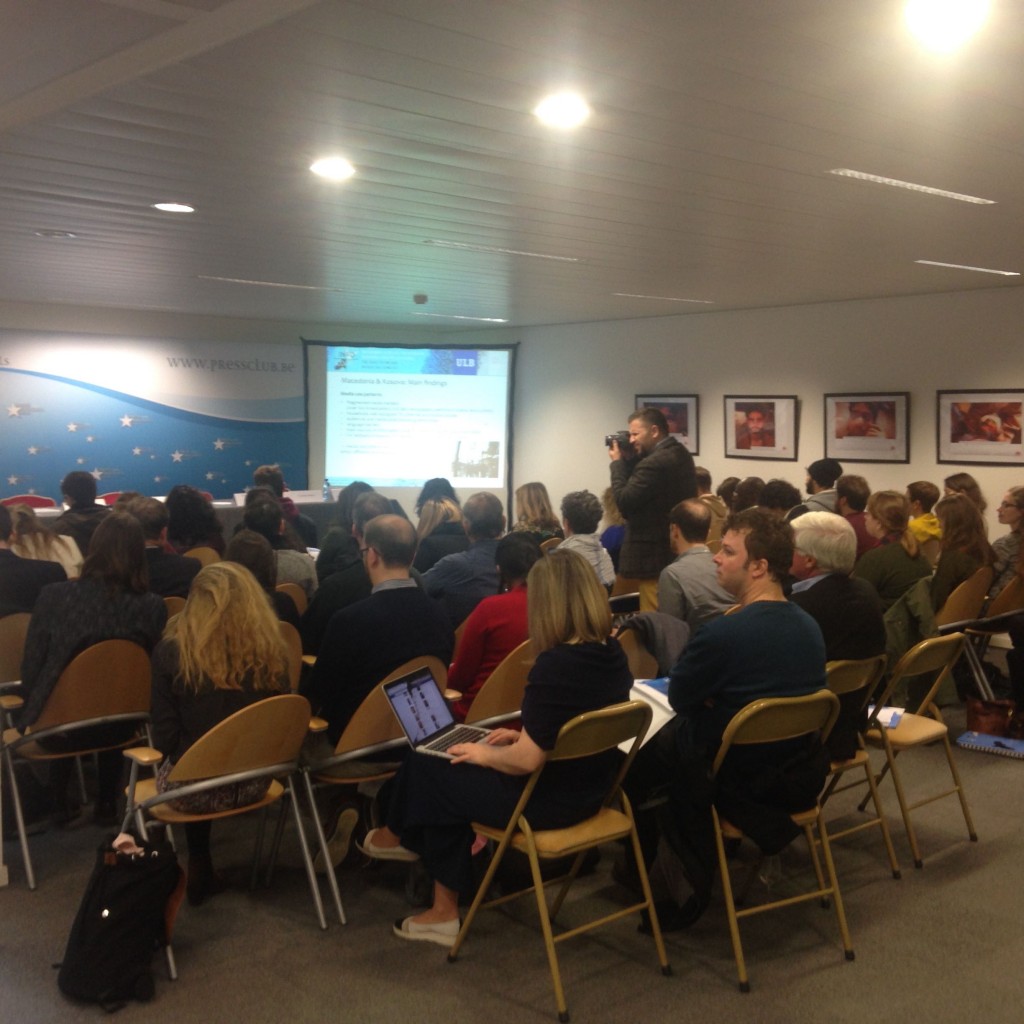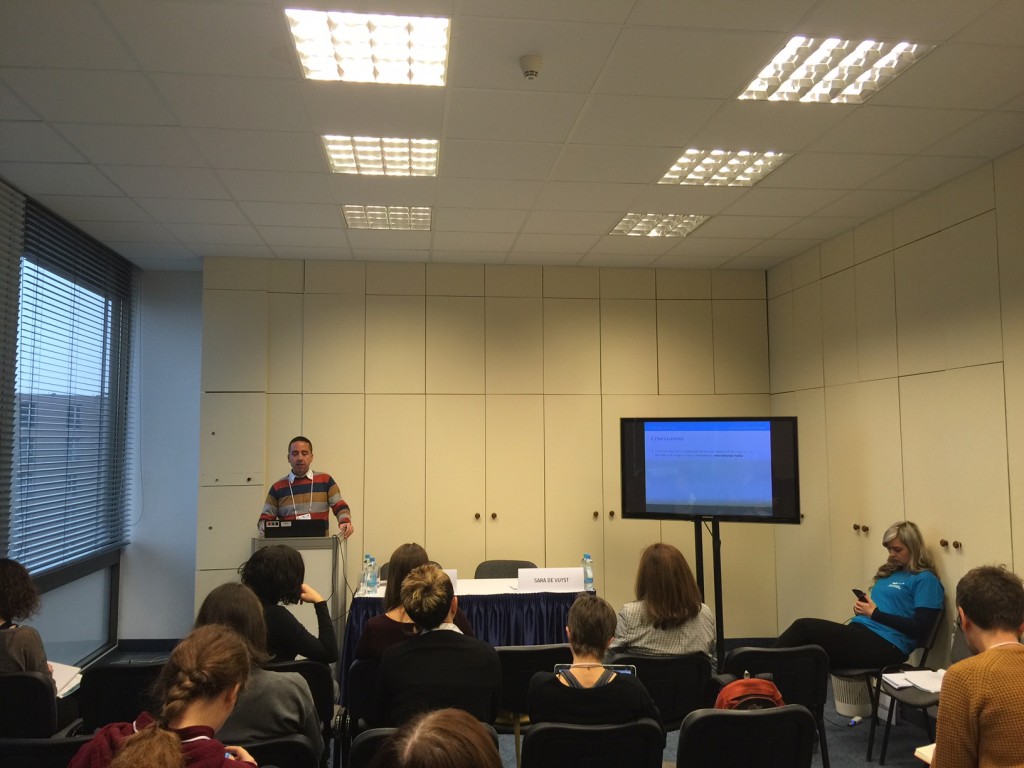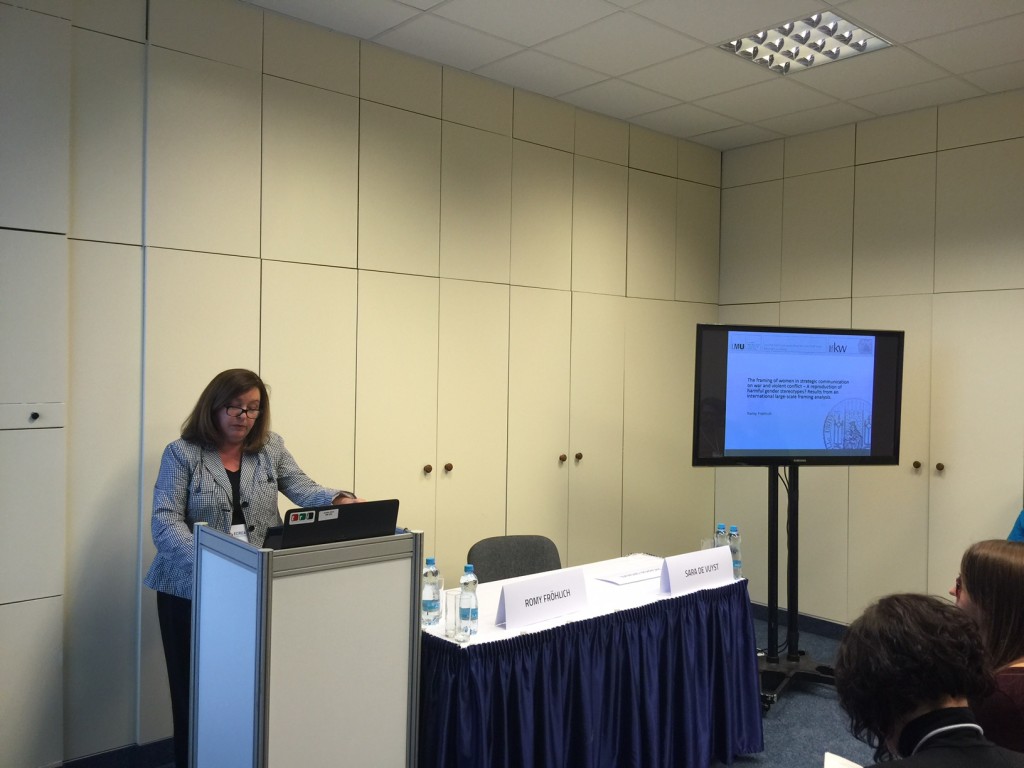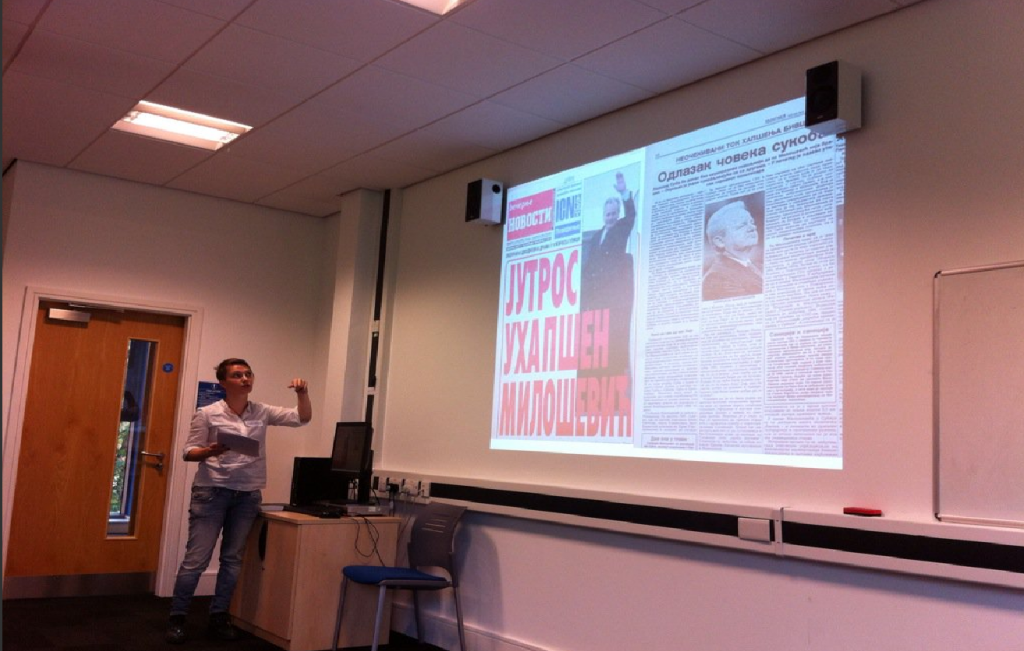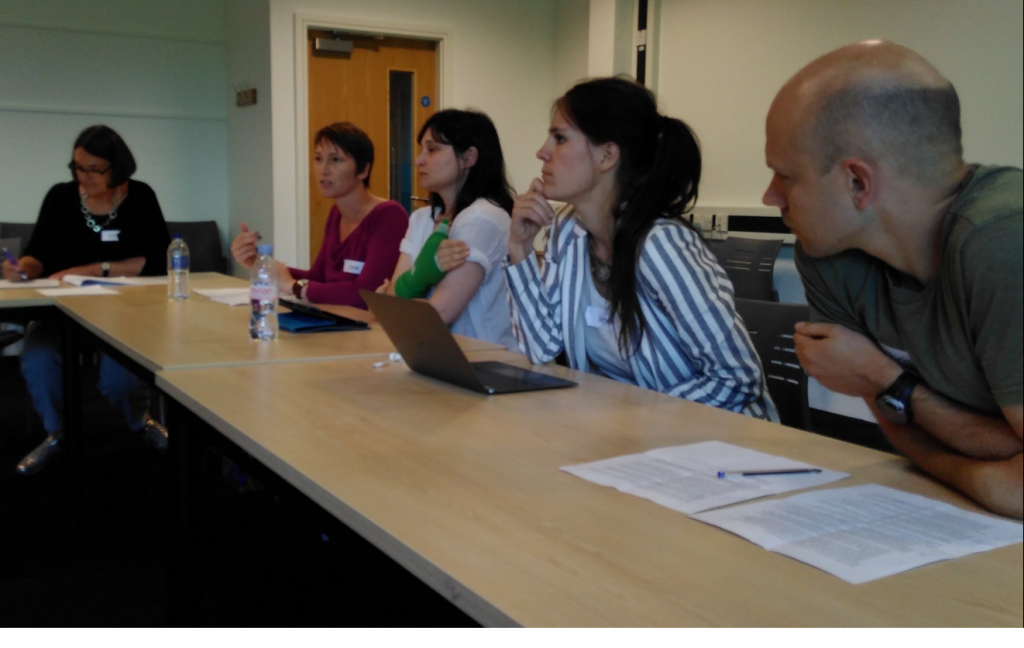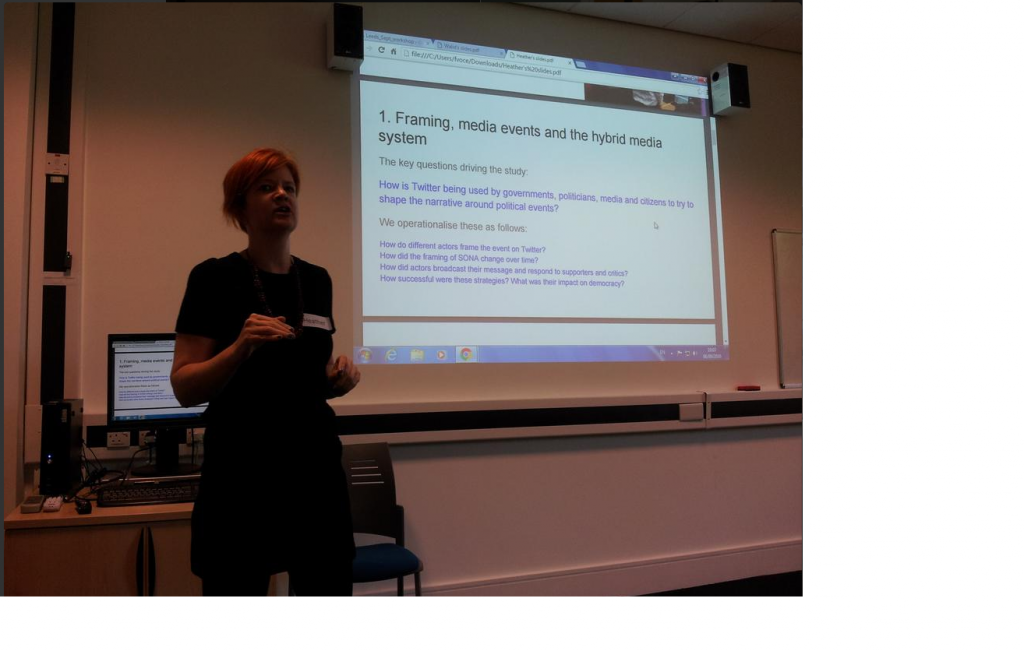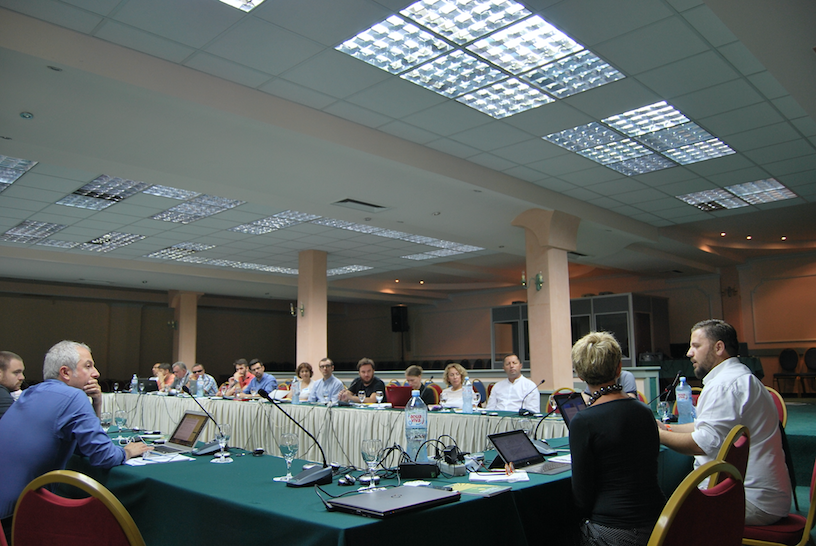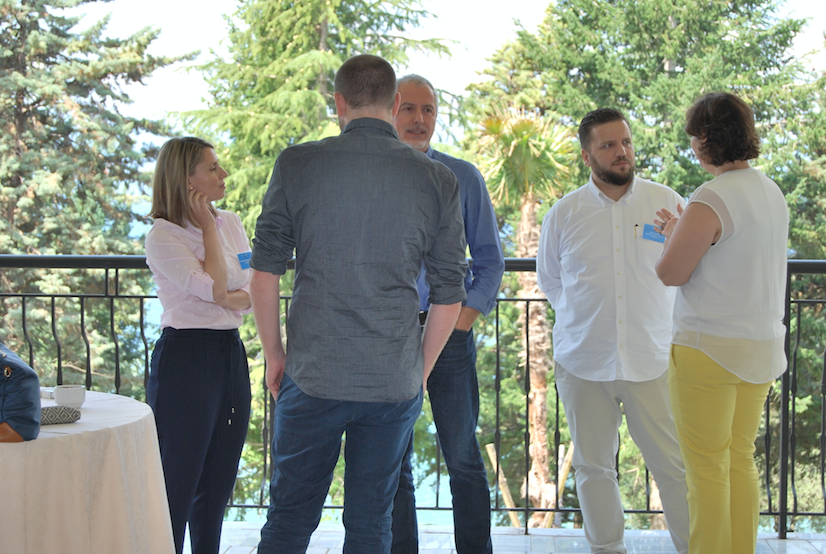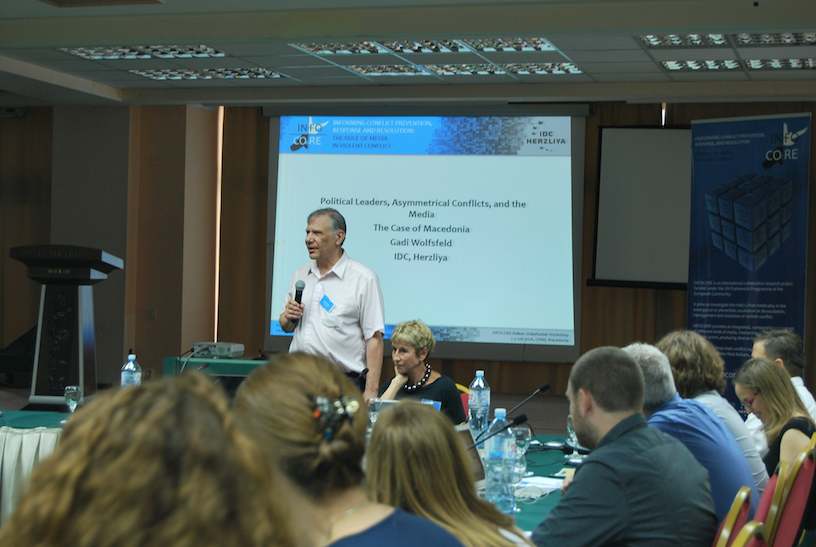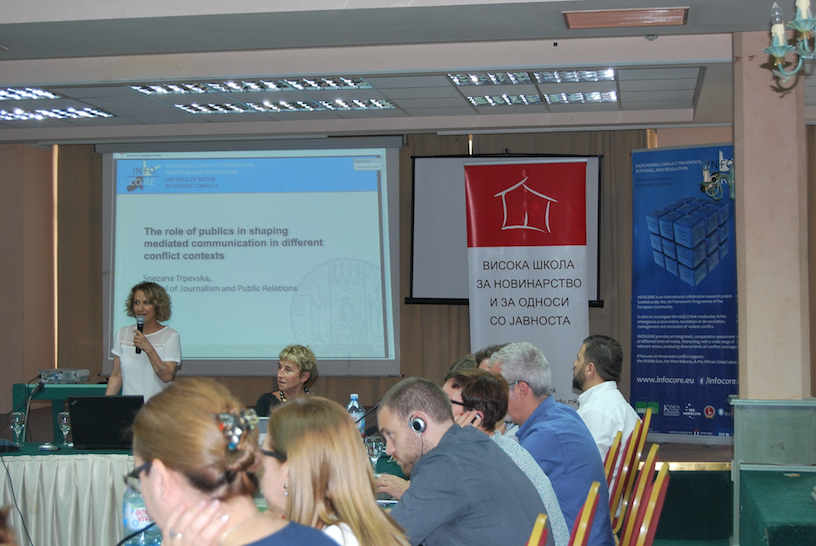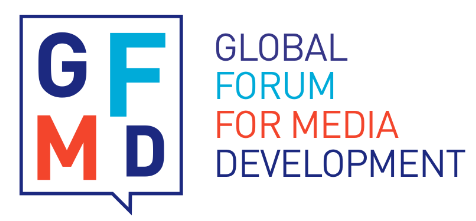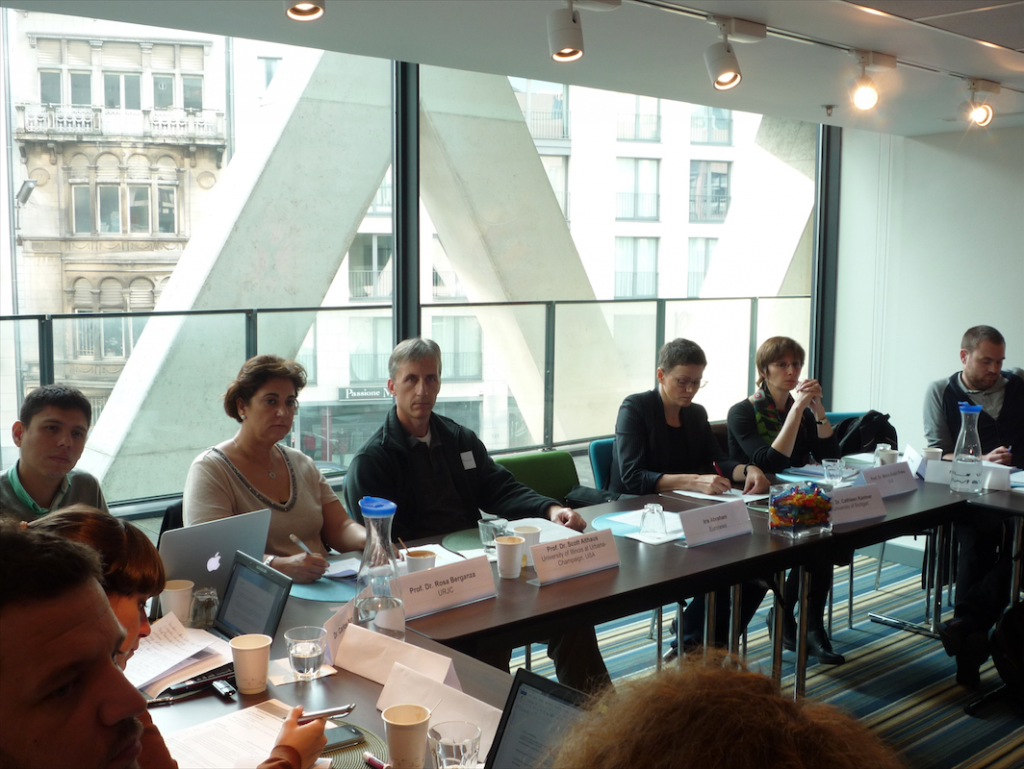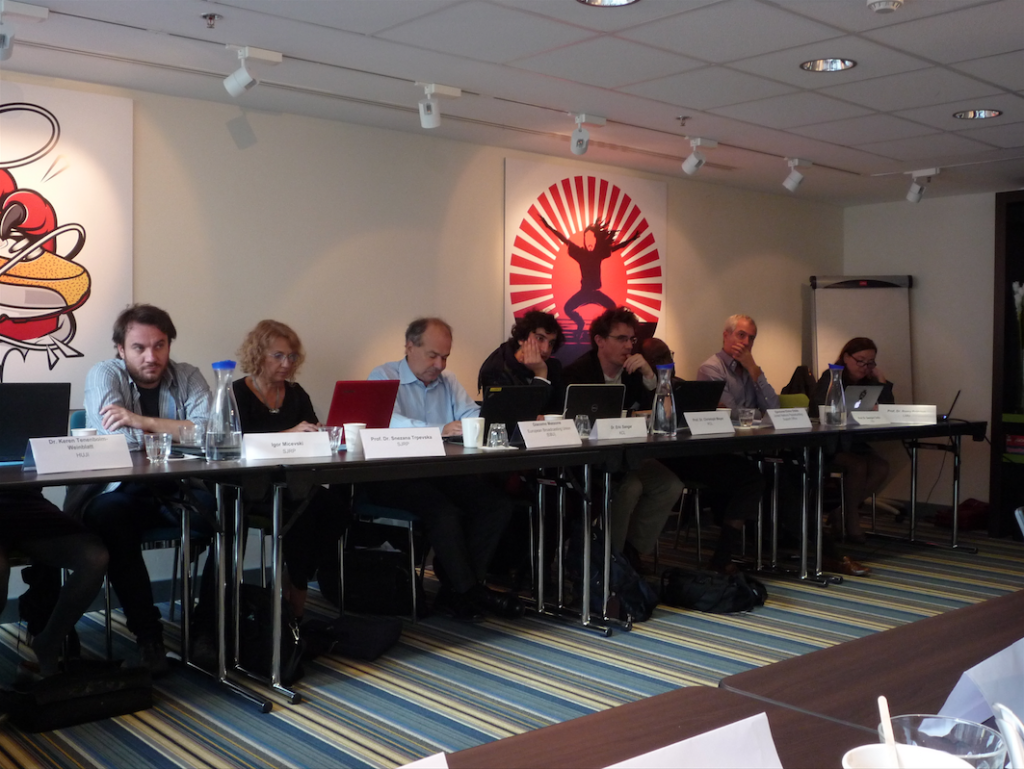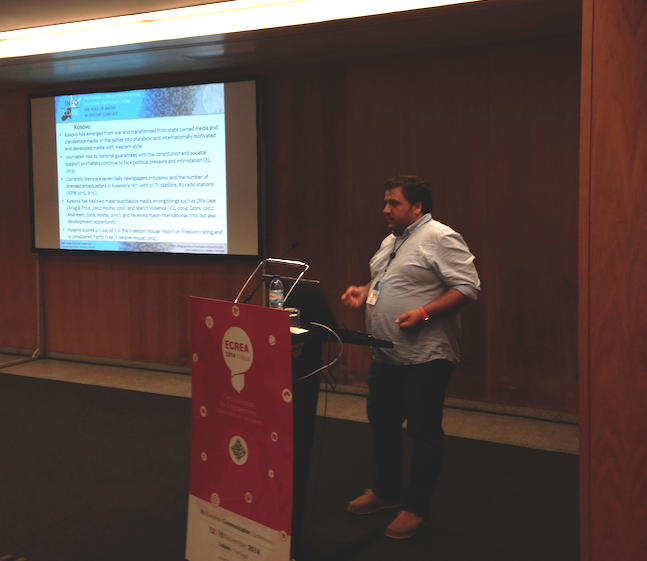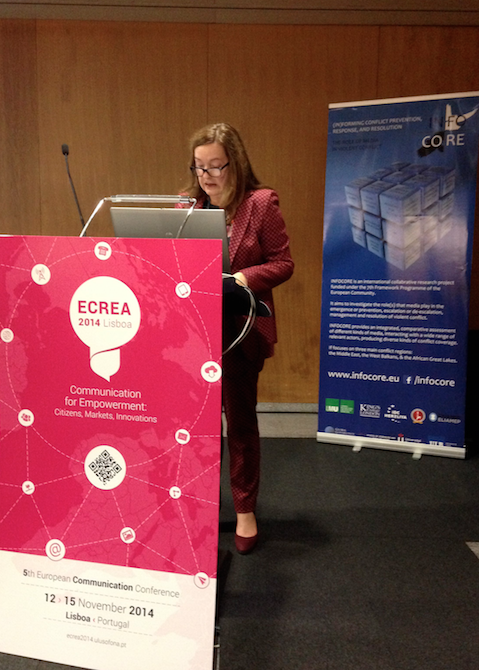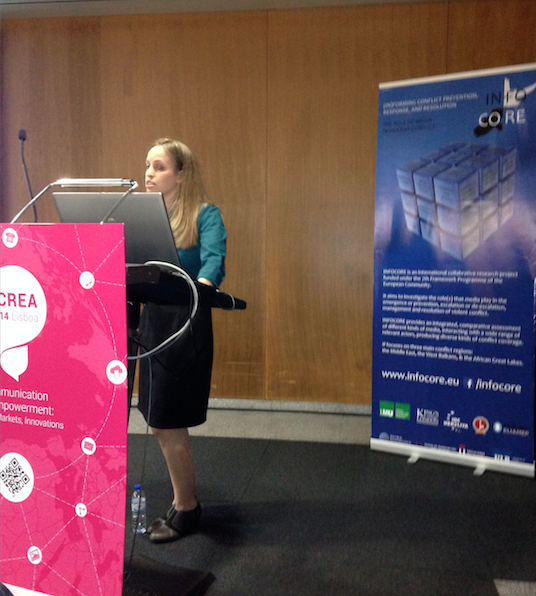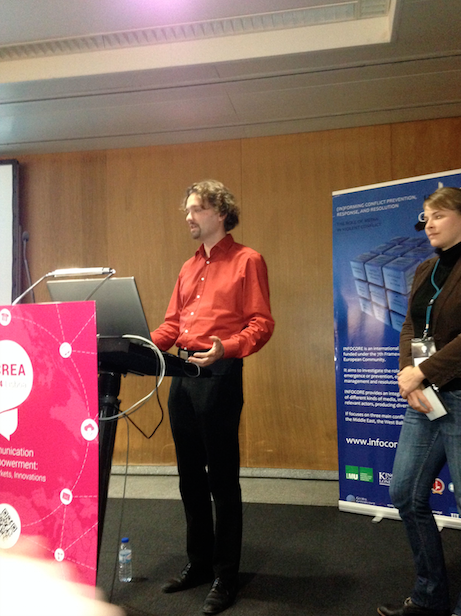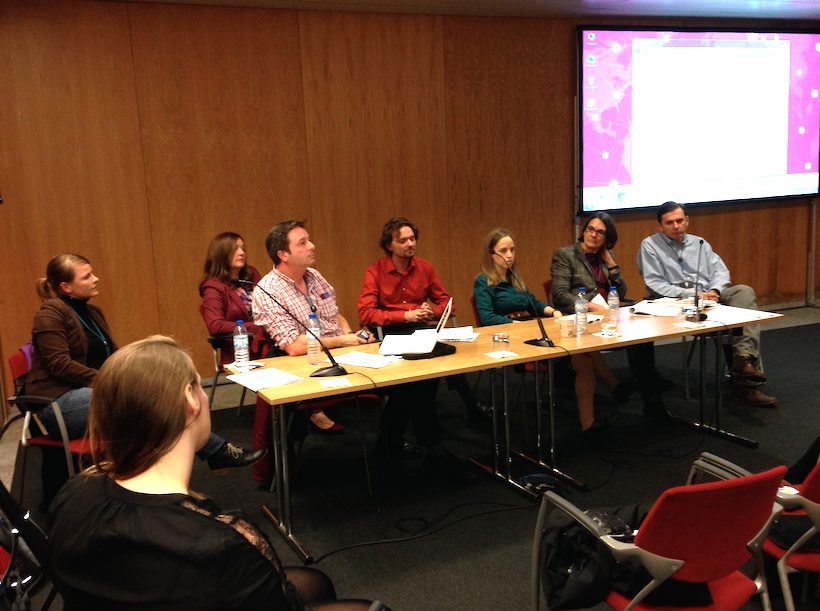Events
All Events
-
Researching Conflict News Production, November 25, 2016, Prishtina, Kosovo
November 25th, 2016 9:00:am,
On the 25th of November 2016, Abit Hoxha presented at a class in front of journalism students at the University of Prishtina on "Researching Conflict News Production”.
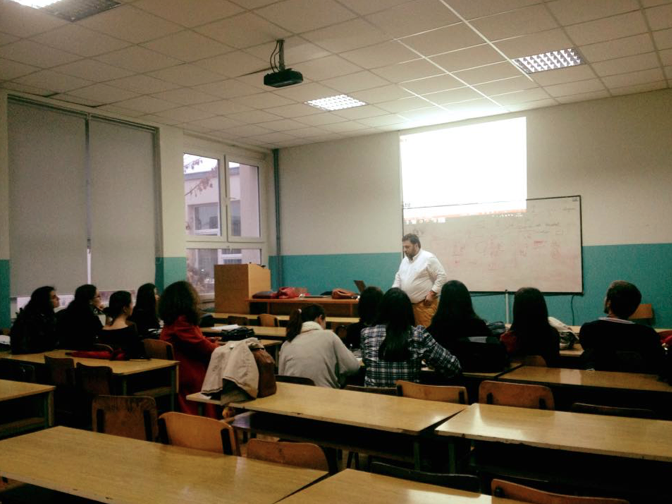
-
MeCoDEM Workshop on Social Media, Conflict and Democracy (Brussels, 18 November 2016)
November 18th, 2016 9:00:am,
Joint workshop with MeCoDEM and Vox Pol on “Social Media, Conflict and Democracy: Utopian Visions, Dystopian Futures and Pragmatic Policies”. #ICTconflict For the live stream, agenda and workshop outline, click here.
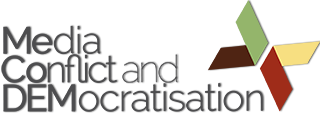

-
The Brussels Final Dissemination Conference, November 17, 2016, Belgium.
November 17th, 2016 9:00:am,
The Brussels Final Dissemination Conference was held on 17 November 2016 to a diverse audience composed of stakeholders and representatives from NGOs policy-makers, journalists and media, academics and students. The INFOCORE researchers presented the final results and policy recommendations from their respective work packages which ultimately seek to gain a deeper understanding of news creation in conflict areas; more specifically in Israel and Palestine, in Syria, in Kosovo, in F.Y.R.O. Macedonia, in Burundi and in the DRC. Major topics which were also addressed include the role of NGOs in conflict news reporting, the role of new media in conflict-related news, how the general public views the media in war zones, the impact of gender on conflict news and its coverage, and specific policy implications of the INFOCORE research.
-
Final Stakeholder Seminar, Brussels, Belgium. November 16, 2016
November 16th, 2016 9:00:am,
On 16th November 2016, the INFOCORE team presented the final conclusions of their respective work packages to expert stakeholders from academia, media groups, policy-makers and NGOs. Each presentation was followed by a Q&A session with stakeholders also invited to give their feedback and suggestions. The final stakeholder seminar was held in Brussels, Belgium.
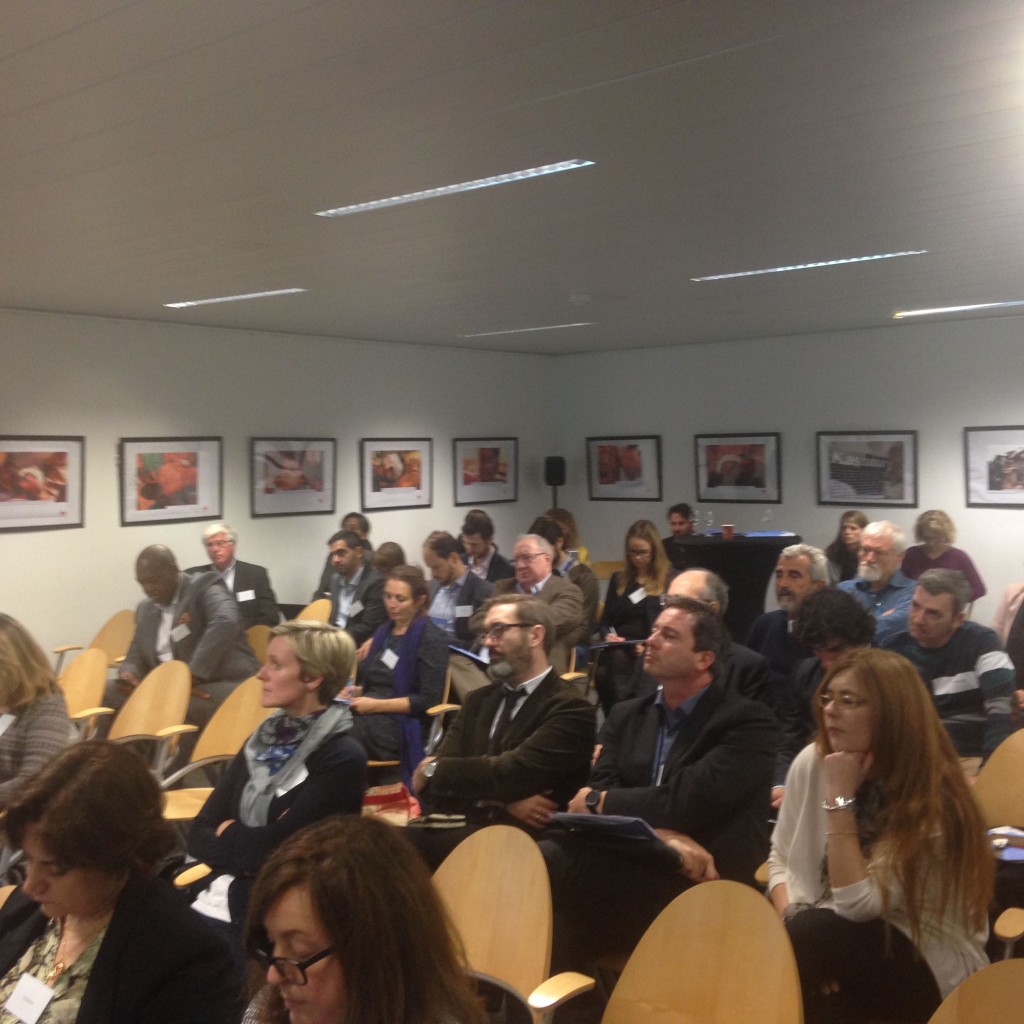
-
ECREA Conference 2016 in Prague, Czech Republic.
November 9th, 2016 9:00:am,
9-12 November 2016, Prague, Czech Republic.
6th European Communication Conference European Communication Research and Education Association (ECREA)
Fröhlich, R. (2016). The framing of women in strategic communication on war and violent conflict – A reproduction of harmful gender stereotypes? Results from an international large-scale framing analysis. Paper presented at the ECREA conference, 9.-12. November 2016, Prague, Czech Republic.
Jungblut, M. & Fröhlich, R. (2016). Between factoids and facts: Analyzing Excellence in NGO Communication. Presented at the ECREA 6th European Communication Conference, Prague, Czech Republic.
Tenenboim-Weinblatt, K. & Baden, C. (2016). Uses of collective memory in news discourse on violent escalation. Presented at the ECREA 6th European Communication Conference, Prague, Czech Republic.
Carratalá, A., Berganza, R., Perelló, S., López-Navas, C., Herrero, B., de Miguel Pascual, R., Lavín, E., & Echevarría, P. (2016). The media in European parliament debates abut African post-conflict situations: supporting women empowerment or consolidating victimization? Presented at the ECREA 6th European Communication Conference, Prague, Czech Republic.
-
Great Lakes Area Stakeholders workshop, Gisenyi, Rwanda, September 28-29, 2016
September 28th, 2016 9:00:am,
On 28 and 29 September 2016, five researchers from the INFOCORE team, representing almost all work packages of the project gathered with around 50 journalists, academics, policy makers and civil society representatives from the DRC and Burundi. This third INFOCORE dissemination stakeholder workshop took place in the town of Gisenyi (in Rwanda) and aimed at discussing the first provisional findings from the different work packages.
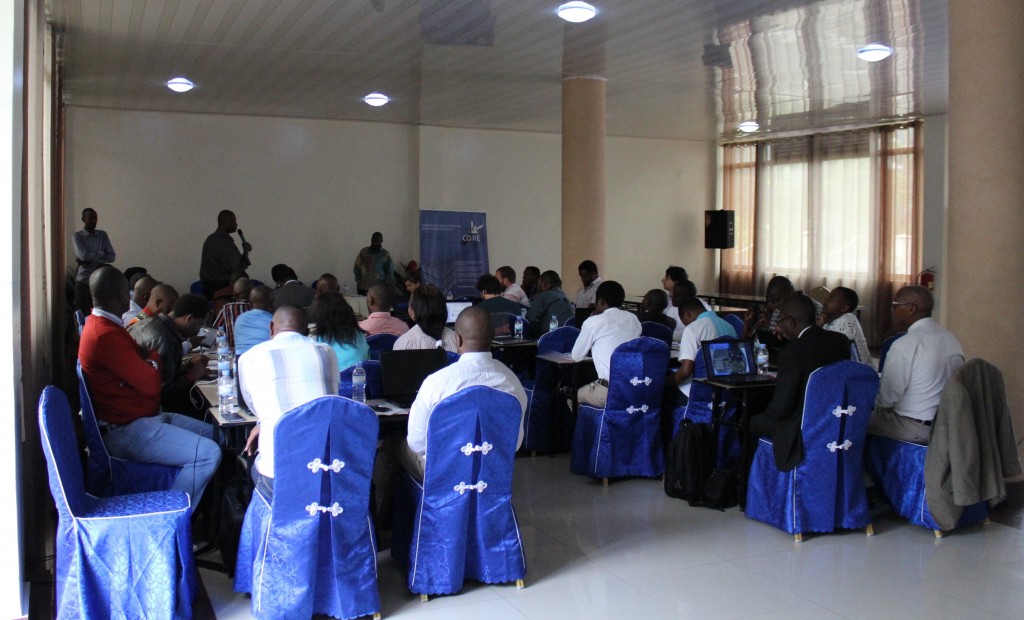
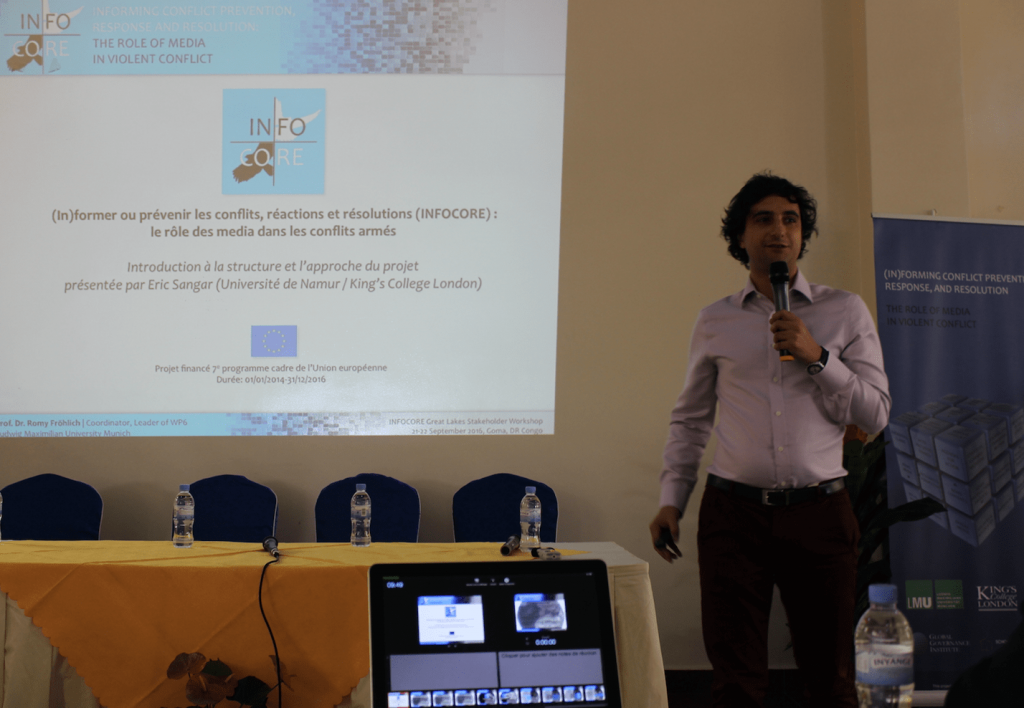
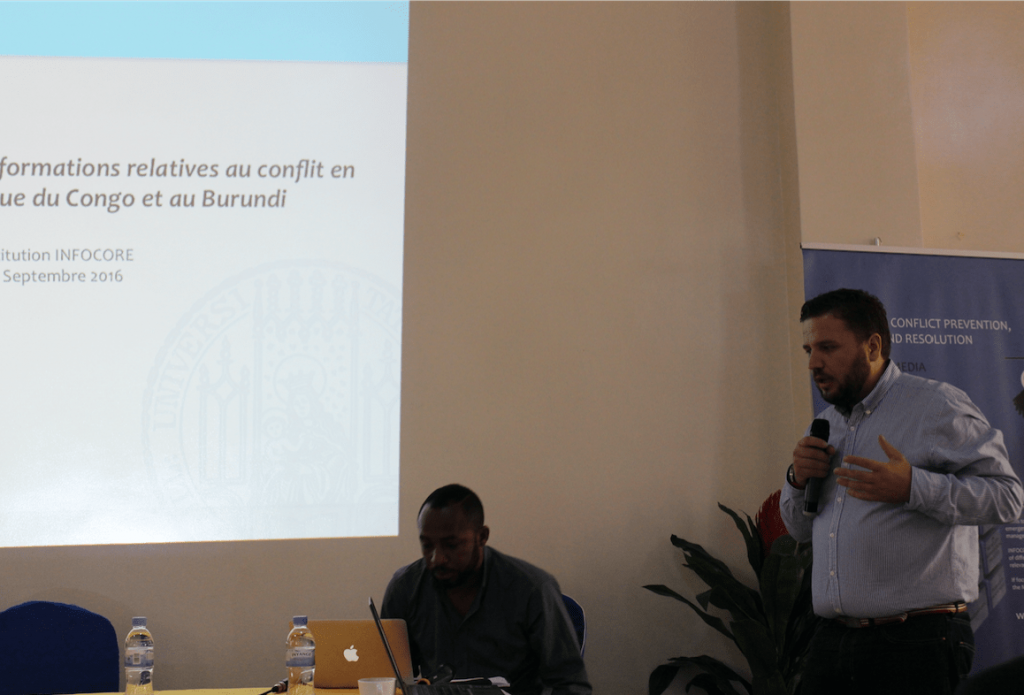
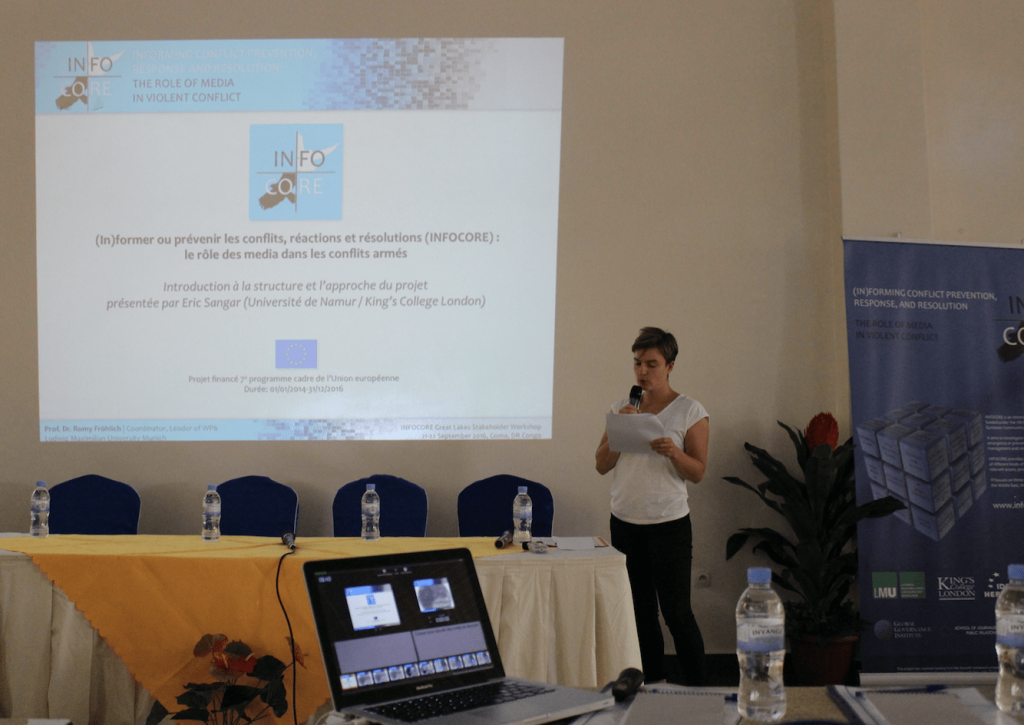
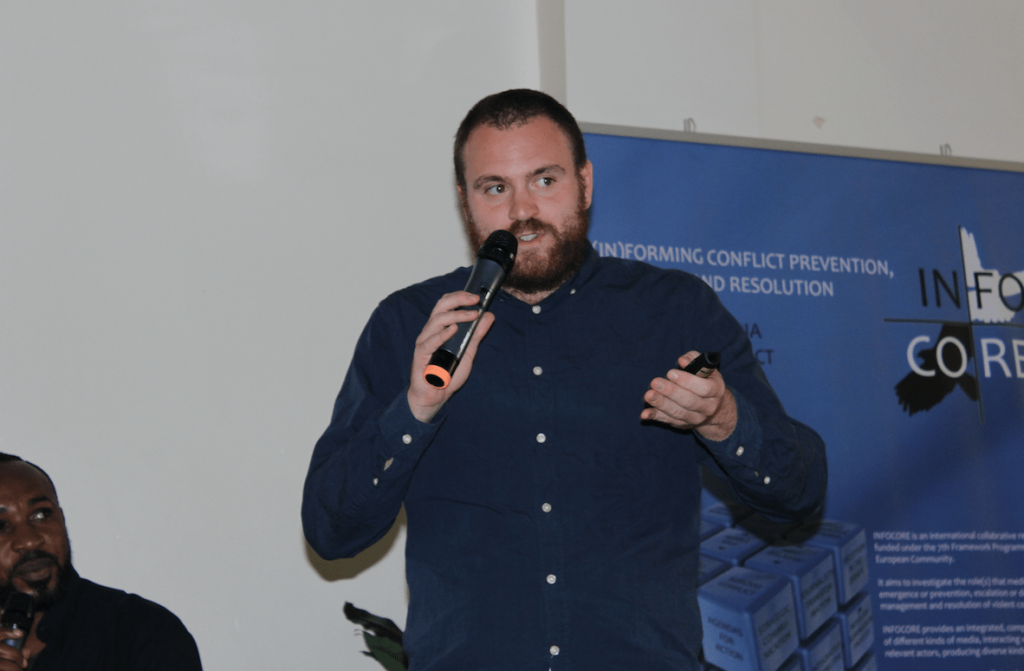
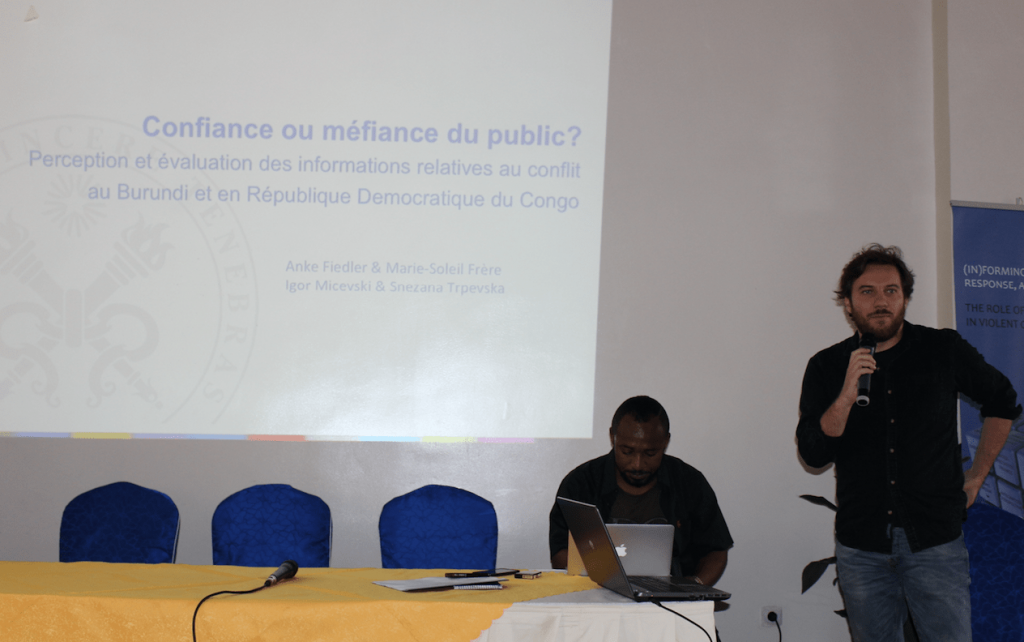
-
September 6th, 2016 10:00:am,
INFOCORE has been working closely with another FP7 EU-Project MeCoDEM given the research focus of both projects on the role of media in conflicts, collaboration between the scholars can contribute greatly to the results as well as initiate new research projects in future. This time, following the joint INFOCORE - MeCoDEM panel at ECREA 2014, a joint MeCoDEM - INFOCORE early-career researchers workshop took place at the University of Leeds on the 6th of September 2016, giving an opportunity to doctoral candidates as well as to post-doctoral students to present their own research and approaches to studying media and conflict. The workshop consisted of three panels and a round table where the participants had a chance to present their work and express their opinions on polarisation and nationalism as parts of conflict and democratisation. INFOCORE was represented by two PhD candidates at the workshop: Katsiaryna Stalpouskaya who has reported on INFOCORE’s innovative approach to automated content analysis and Ieva Zakareviciute who investigates the role of visuals in conflict discourses. Both presentations received a lot of positive feedback and valuable comments which can be used in doctoral thesis of Katsiarya and Ieva as well as to further advance INFOCORE’s methodology. Ieva was also one of the key speakers at the round table. More information on the participants and speakers can be found here.
-
Stakeholders’ workshop, Larnaca, Cyprus, July 24-25 2016.
July 24th, 2016 9:00:am,
On July 24 and 25th, 2016 in Cyprus, the INFOCORE team met with journalists, academics, representatives from NGOs, and political leaders. During the conference, the INFOCORE team shared the results and findings from research conducted. These analyses were primarily focused in the Middle East, the West Balkans, and the African Great Lakes, and were expressed through presentations and follow-up discussions in a comparative assessment.
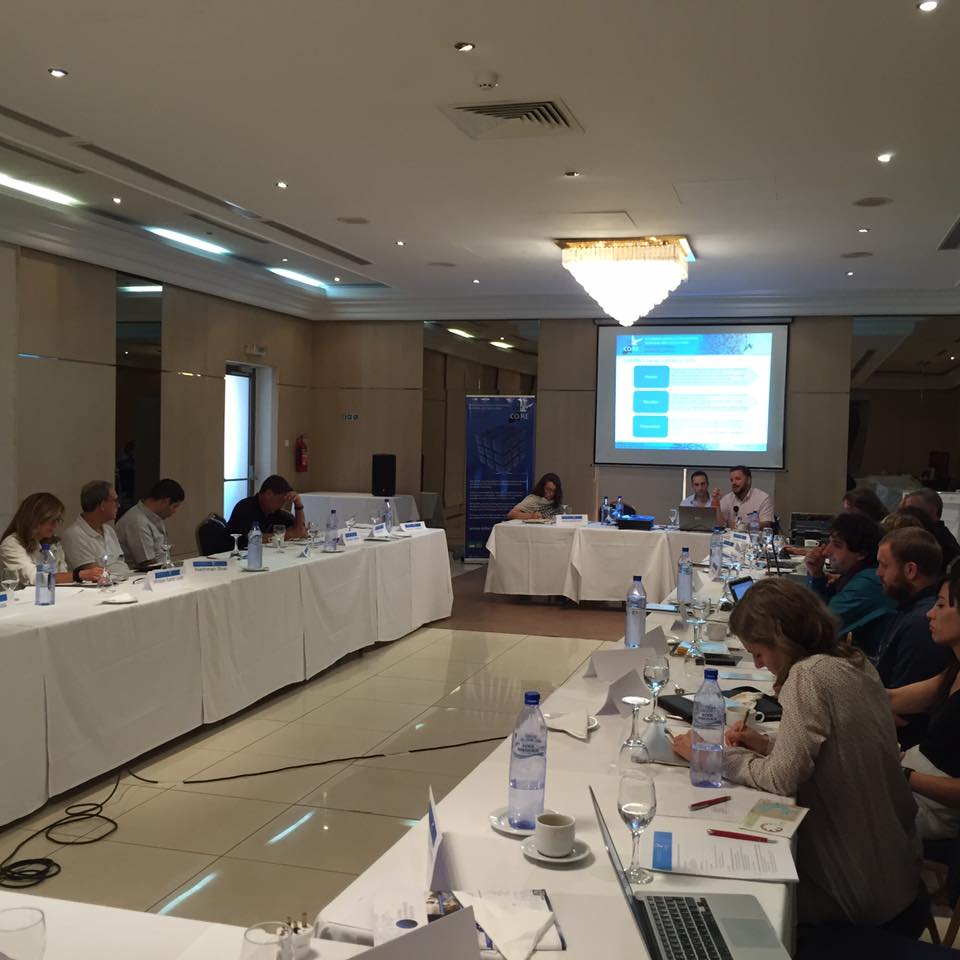
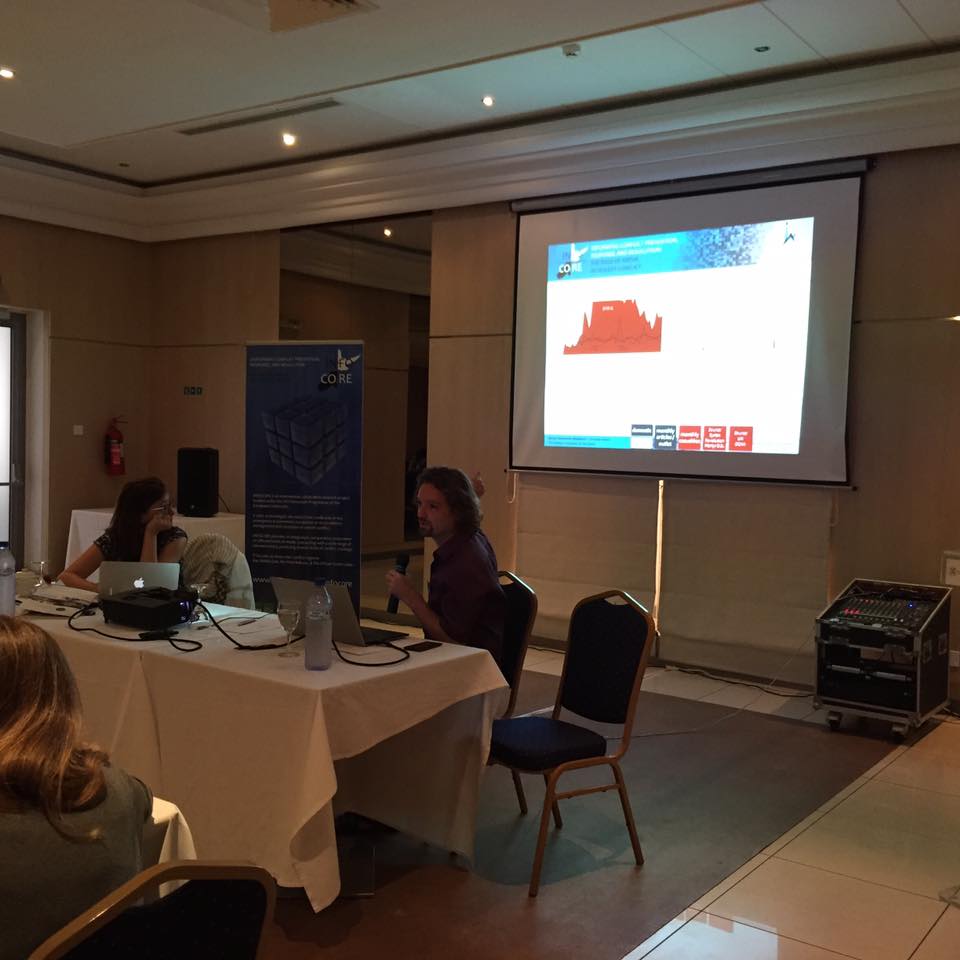
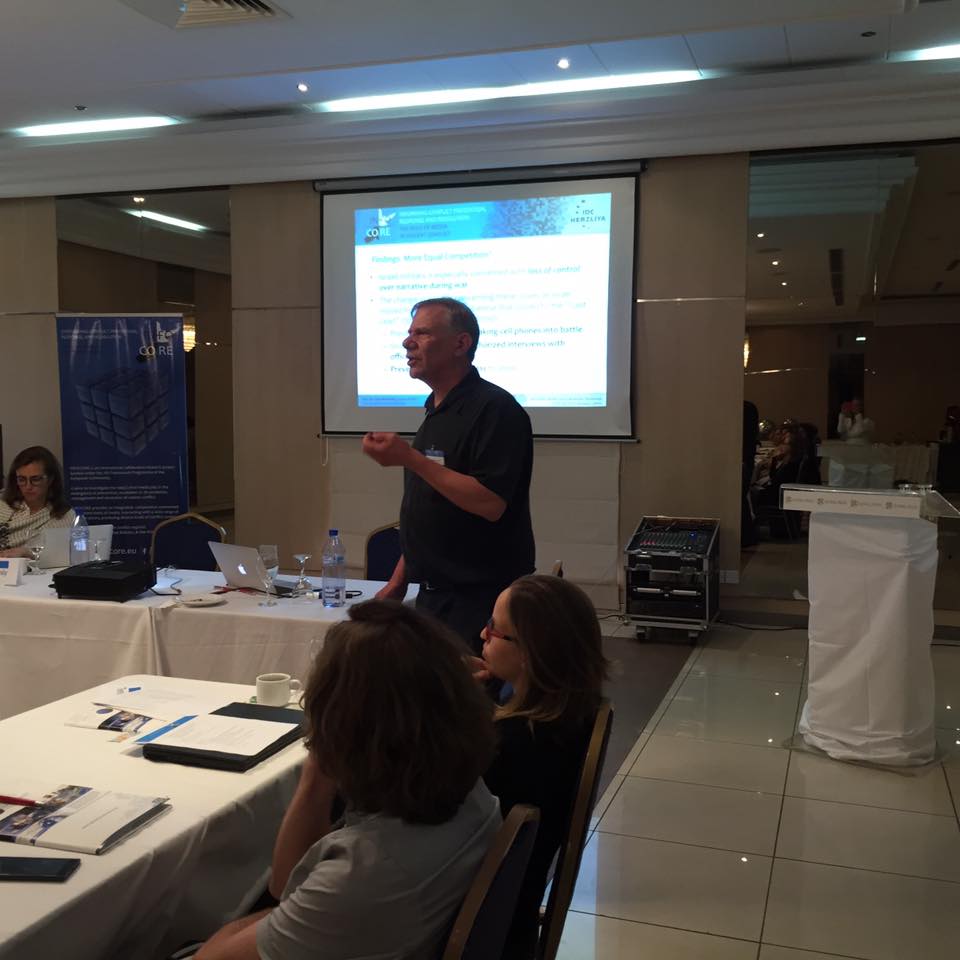
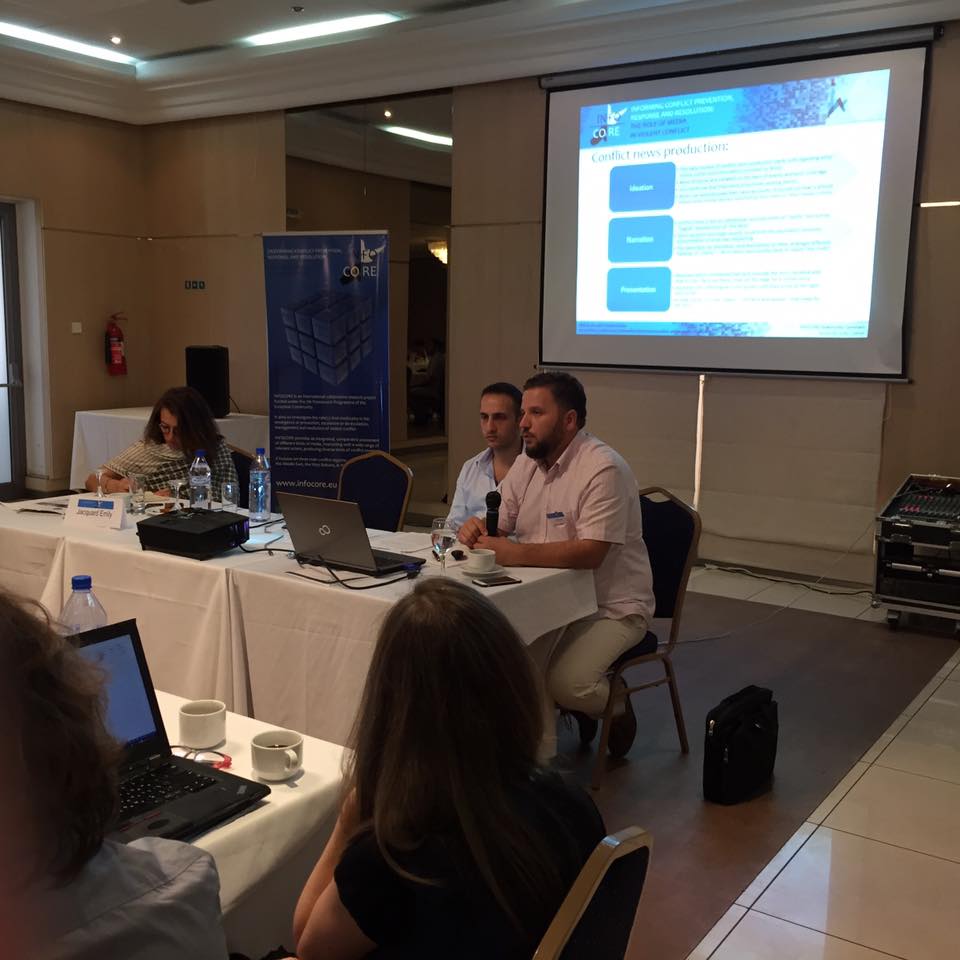
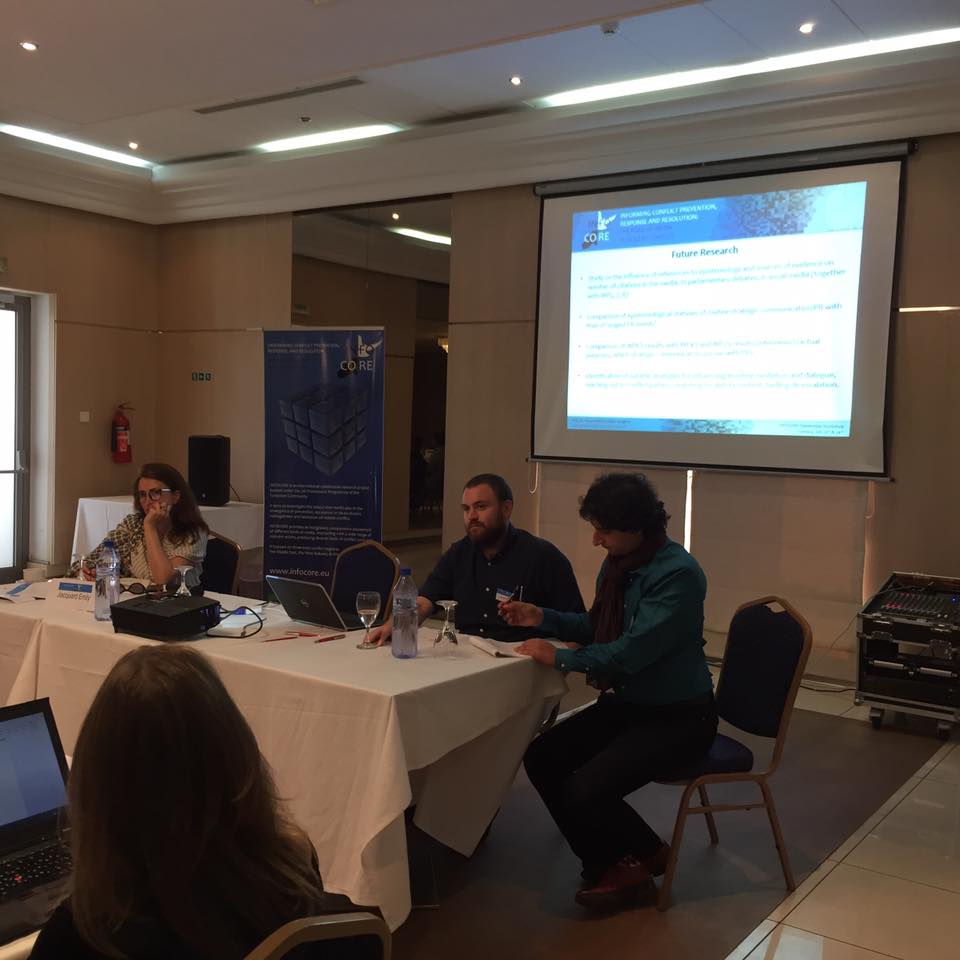
-
Balkan Stakeholders workshop, Ohrid, July 2-3, 2016
July 2nd, 2016 4:30:pm,
-
June 9th, 2016, Hilton Sea Hawk, Fukuoka, Japan
66th Annual Conference of the International Communication Association (ICA)
I. "Media’s impact on key actors in violent conflicts."
Panel convener: Marc Jungblut
Berganza, R., Arcila, C., López Navas, C., Herrero, B., Carratalá, A., Echavarria, P., Lavin, E., & Perelló, S.: "Escalation/pacification of violent conflicts: the role of media on European Parliamentary debates."
Gonen, Y., & Hoxha, A.: "Relations and interactions between journalists from two sides of a conflict."
Jungblut, M.: "Distributed, discussed or discredited? Media reflections in NGO publication."
II. "New approaches to studying conflict news."
Panel convener: Christian Baden
Hoxha, A., & Hanitzsch, T.: "How the news comes into being: Researching conflict news production through retrospective reconstruction interviews."
Baden, C., & Tenenboim-Weinblatt, K.: "This means war: Identifying patterns of escalation in conflict news using quantitative discourse analysis and comparative semantic networks."
Dimitrakopoulou, D. & Boukala, S.: "Exploring the Israeli-Palestinian conflict through the lens of social media: A multi-methodical approach."
Individual ICA-Papers:
Frère, M.-S., & Fiedler, A.: "Balancing plausible lies and false truth: Perception and evaluation of the local and global news coverage of conflicts in Burundi and the DRC."
Baden, C., & Tenenboim-Weinblatt, K.: "Evolving alignments: A longitudinal comparative study of inter-media similarity & diversity in the coverage of the Israeli-Palestinian conflict."
Baden, C., & Tenenboim-Weinblatt, K.: "Journalistic transformation: How source texts are turned into news stories."
Jungblut, M., & Zakareviciute, I.: "Do pictures tell a different story? A multimodal frame analysis of the 2014 Israel-Gaza conflict."
Jungblut, M., & Ohlinger, U.: "Journalism culture and its impact on the contextualization of reality – A qualitative narrative- and framing-analysis of the political foreign news in German and British newspapers."
Stalpouskaya, K., Communication Research Methods Preconference, Paper: "Extracting Agendas for Action from News Coverage Using Machine Learning Techniques."
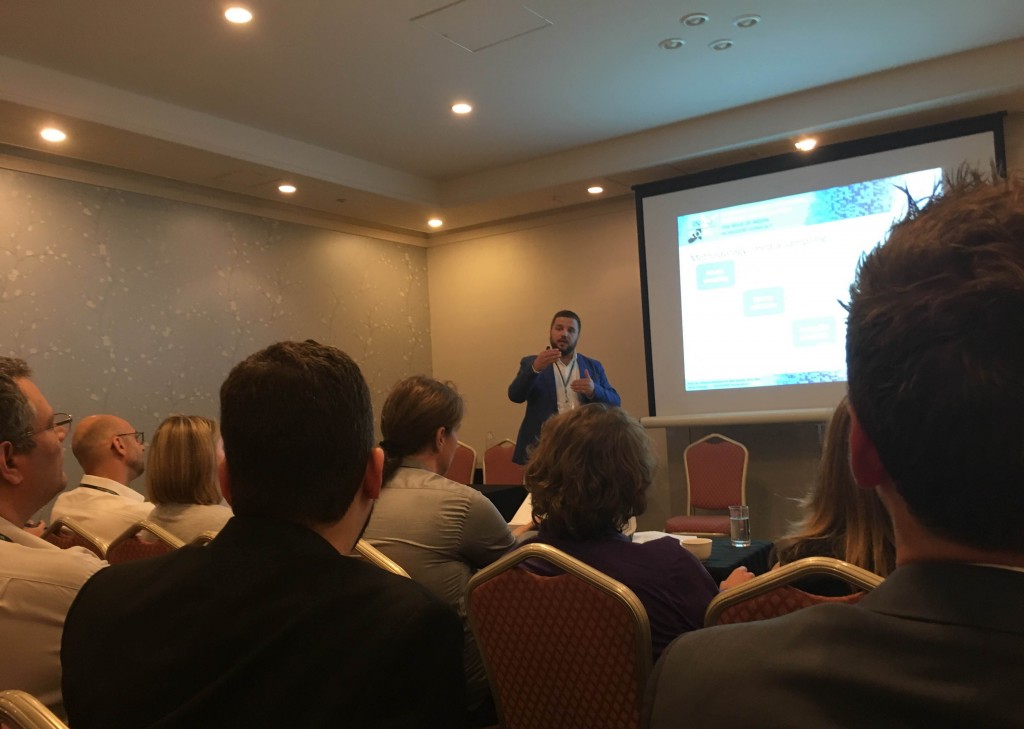
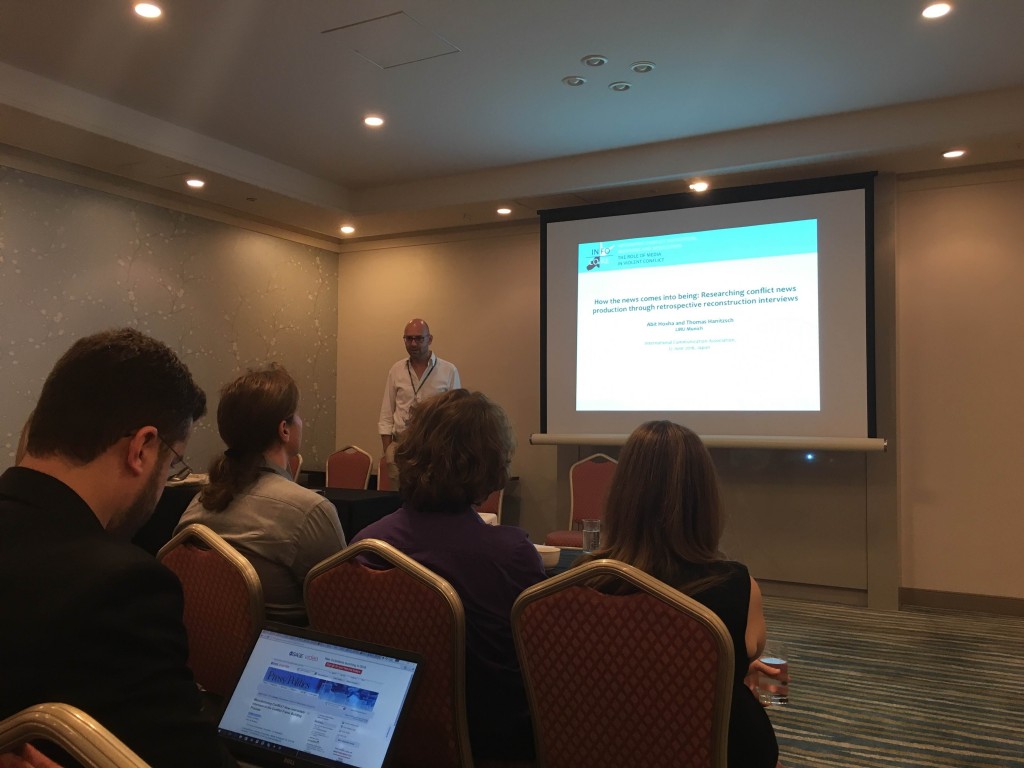
-
April 26th, 2016 6:30:pm,
The workshop brought together organisations from media development, academics and practitioners working on media development, strategic communication and CVE. Professor Christoph Meyer represented the INFOCORE consortium at the workshop.
The first point to be emphasised is the importance of media credibility in order to have an impact and this can be highly variable in terms of which types of media and actors are considered how trustworthy by whom and in different contexts. This can only be ascertained through listening carefully to what relevant publics have to say and which media they actually consume. In many of our conflict cases, the preliminary evidence points to low levels of trust among populations in many national-level news organisations whom they see as compromised by political or commercial interests and thus untrustworthy in various ways. Yet there are also credible communicators who are often very local and may in some cases not conform to standard expectations of what a medium is and intersect at times with forms of community mobilisation and social movements. Such local actors can use modern technology to fill a void in supplying information to foreign news media in settings of ongoing conflict and build up their credibility over time through the provision of such information. In such conflict situations, one of the challenges for media development activities is how such local actors can be supported without compromising their independence, the physical safety of those working for them or undermine their credibility by denying accurate news that may be inconvenient for some of the donors. In less dangerous settings the challenge is how donors can integrate media assistance in broader strategies of democratisation and development that tackle the many obstacles for media to report independently from the national or local power-brokers.
Second, the success of media assistance cannot be analysed in isolation from many other actors and processes, including the policies pursued by governments and international organisations. A new strategic approach is needed in some of the countries where retrograde processes are identified in terms of media and journalists' freedoms , because the existing types of assistance and support to the media haven't resulted so far to expected outcomes. Success should not just be measured in terms of changing behaviour or attitudes, but also in terms of enhancing public knowledge through more accurate and relevant information.
For more information about the workshop can be found here.
-
INFOCORE Panel at ISA Conference “Exploring Peace” in Atlanta, GA
March 17th, 2016 12:00:am, Hilton Atlanta
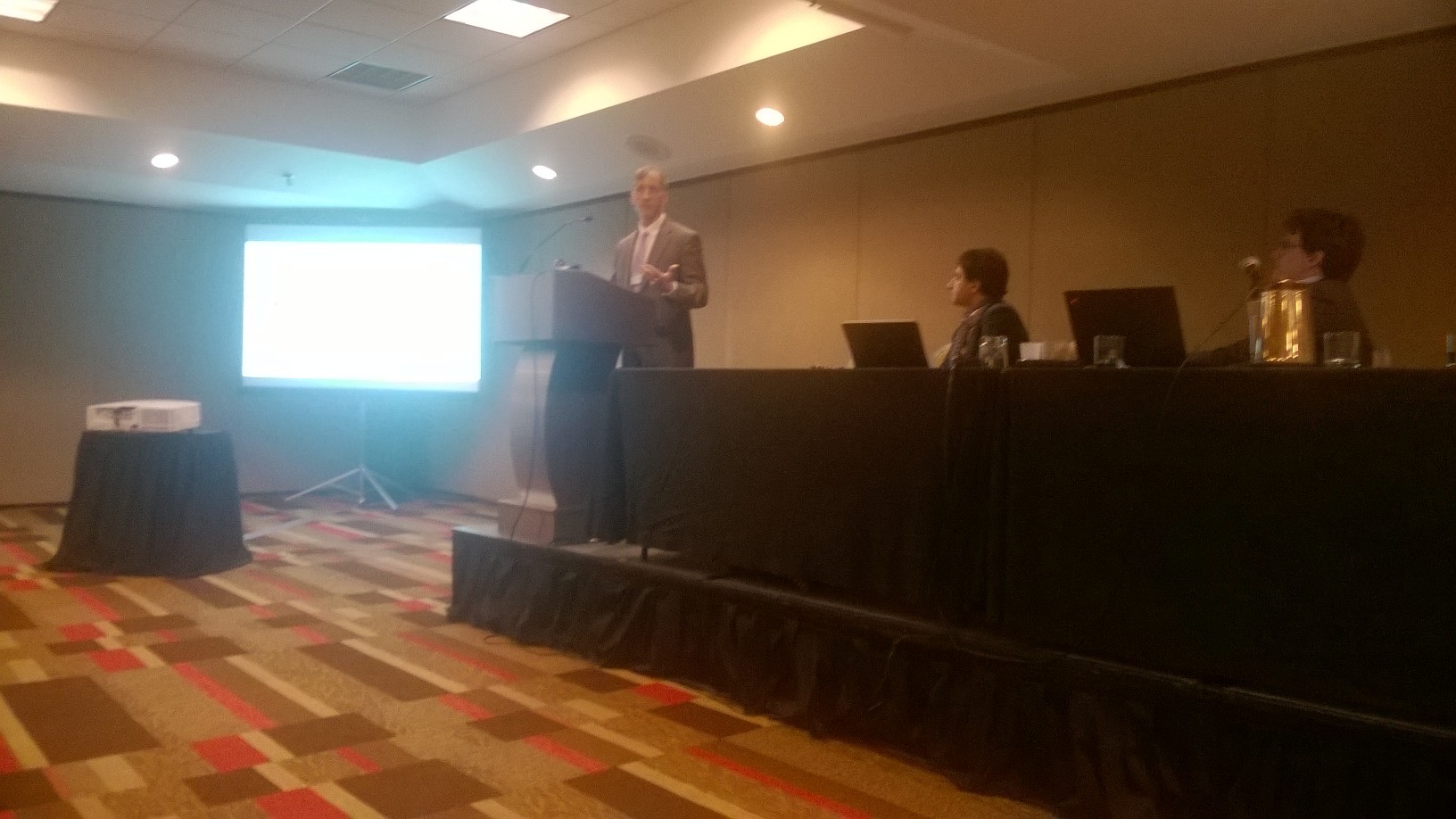 INFOCORE scholars presented three papers at the ISA conference in Atlanta, themed "Exploring Peace".
INFOCORE scholars presented three papers at the ISA conference in Atlanta, themed "Exploring Peace".
Entering into discussion with the community of conflict scholars and political scientists, the panel addressed the roles of cognitions vs. emotions, specific influences vs. wide media ecologies, and the rising prominence of new actors such as NGOs.
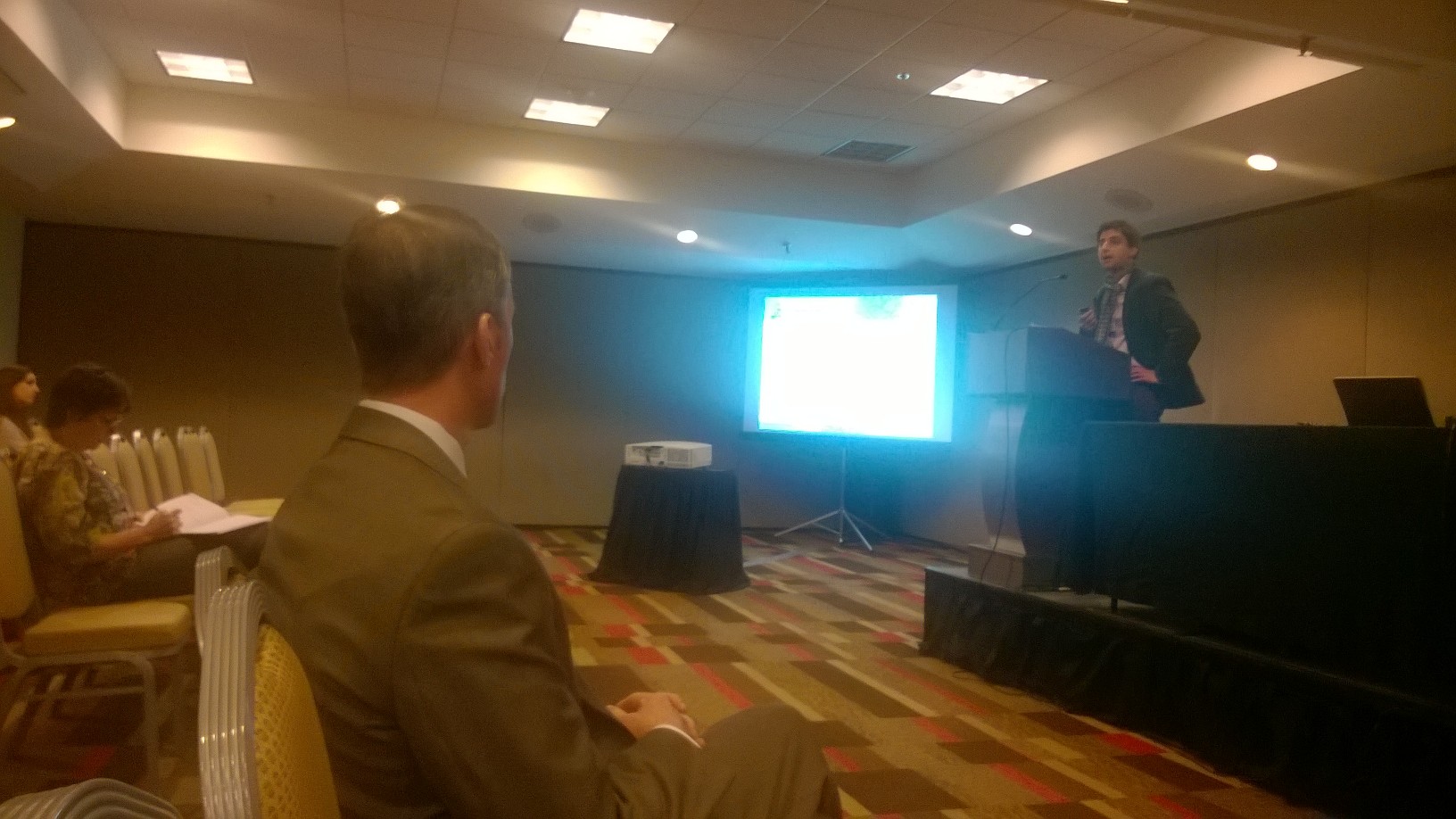
The three INFOCORE papers were:
- Christian Baden & Christoph Meyer: The INFOCORE Approach to Media Influence on the Prevention or Escalation of Violent Conflict
- Chiara de Franco: Media Power in Violent Conflict: Practices of Escalation and Transformation
- Christoph Meyer & Eric Sangar: In Search of the “NGO Effect”? An Empirically Grounded Assessment of the Evolving Role of NGOs in Mediated Conflict
- Scott Althaus: Priming Us against Them, Again and Again? The Effects of War News on Domestic Support for American Military Conflicts across the Post-World War II Era
Thanks to Christoph Meyer for organizing, Chiara de Franco for joining the panel, and to Laura Roselle for serving as a great respondent!
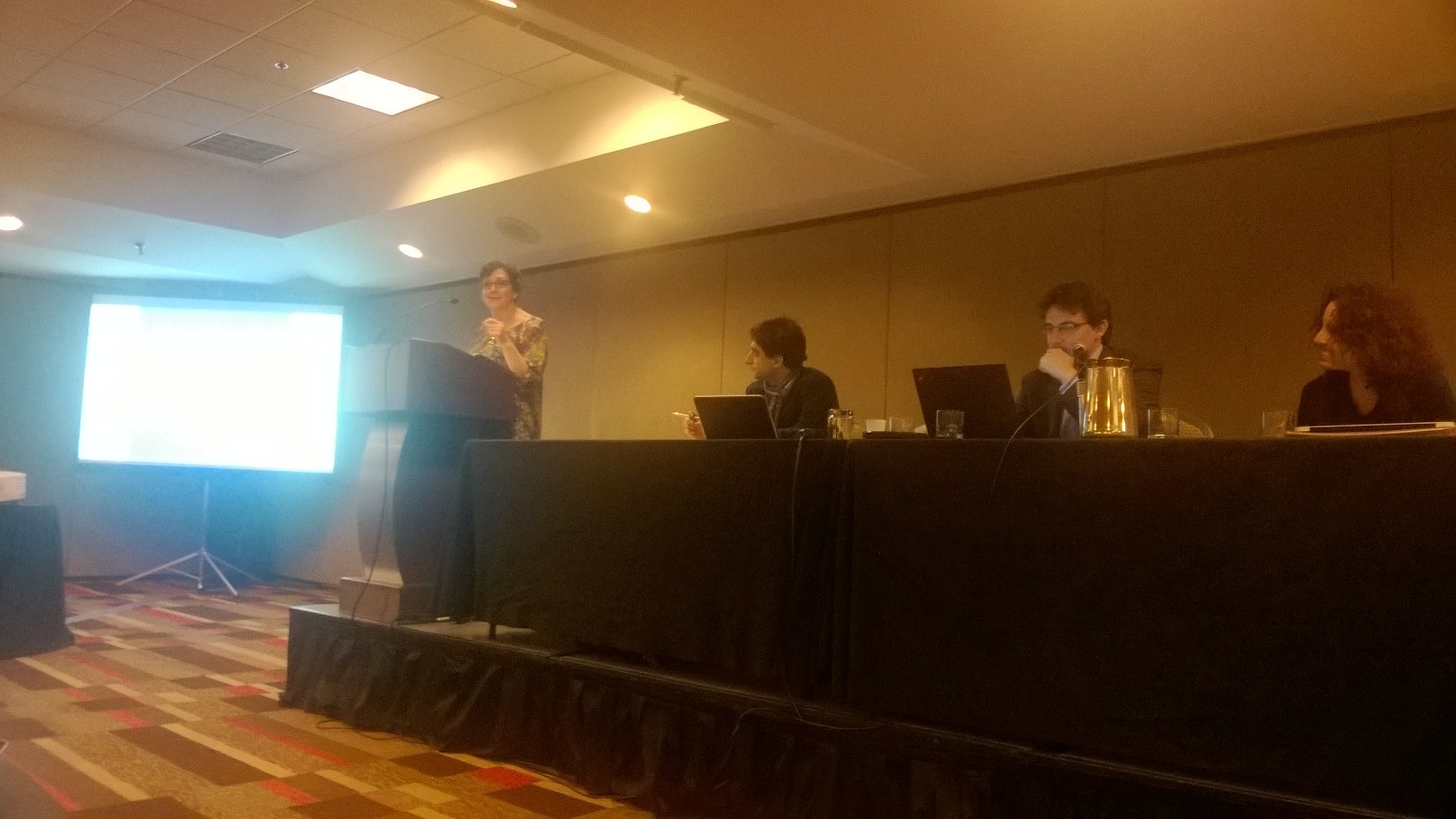
-
Advisory Board Meeting II – Brussels – 11 October, 2015
October 11th, 2015,
-
Stakeholders Seminars (Media, Policy Makers, Academics, NGOs), Brussels 9-10 Oct 2015
October 9th, 2015,
1. Opening panel for the Stakeholder Seminars (Day 1, 9 October 2015)
INFOCORE’s first Stakeholders’ Seminars took place in Brussels, on October 9th and 10th. In a series of presentations and seminars each Work Package presented to the four main stakeholder groups: policy-makers, academics, NGOs, and media. During these events, researchers from the eight Work Packages came together to share findings from the first fieldwork and first analytic stages of the project. The aim of the Stakeholder meeting was to shape policy debate and to test findings in their respective fields based on feedback from each Stakeholder Seminar. Based on the input from each Stakeholder group the Work Package leaders will advance to the next stage of the project.
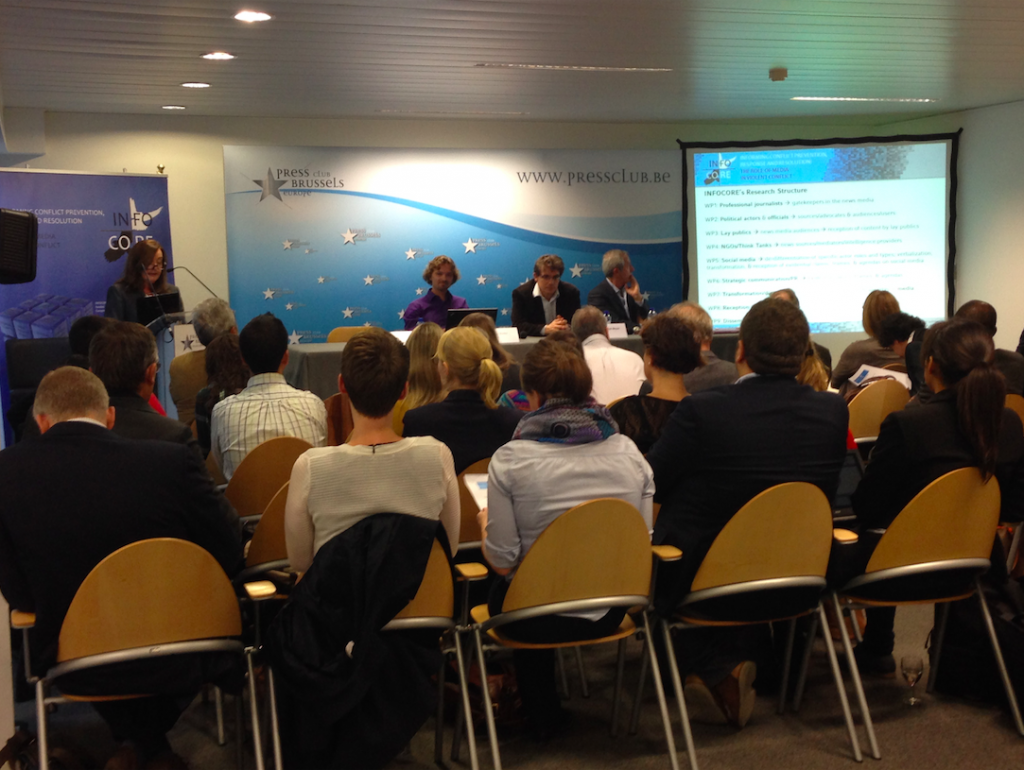 2. Stakeholders Group: Academics
2. Stakeholders Group: Academics
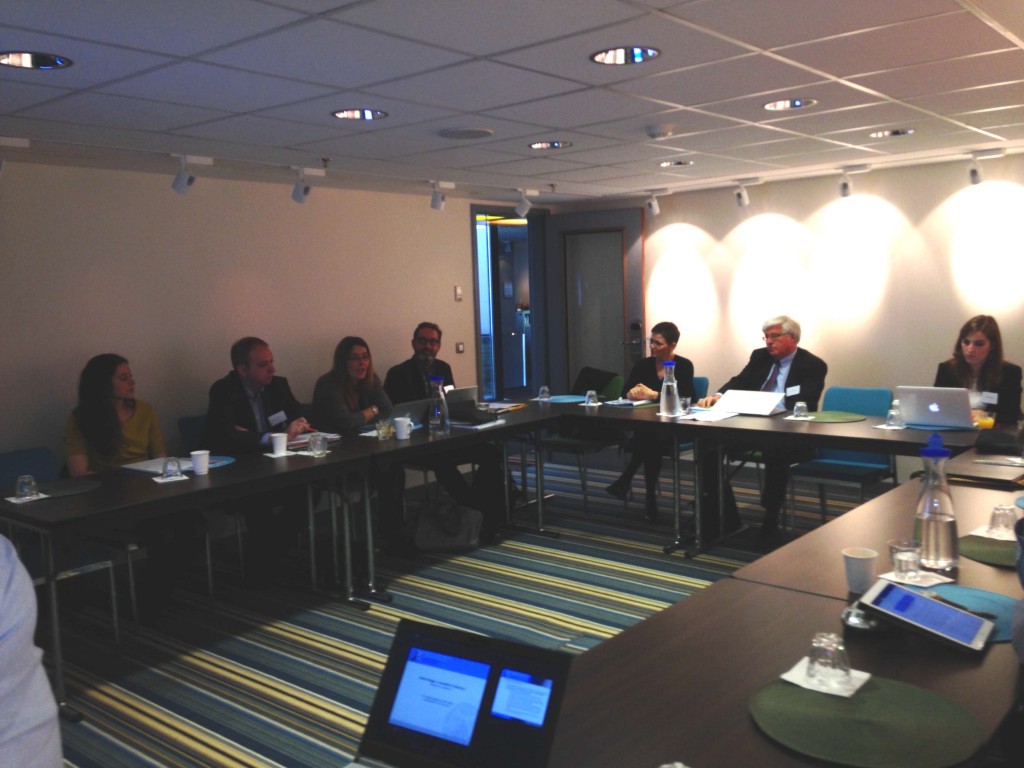 3. Stakeholder Group: Media
3. Stakeholder Group: Media
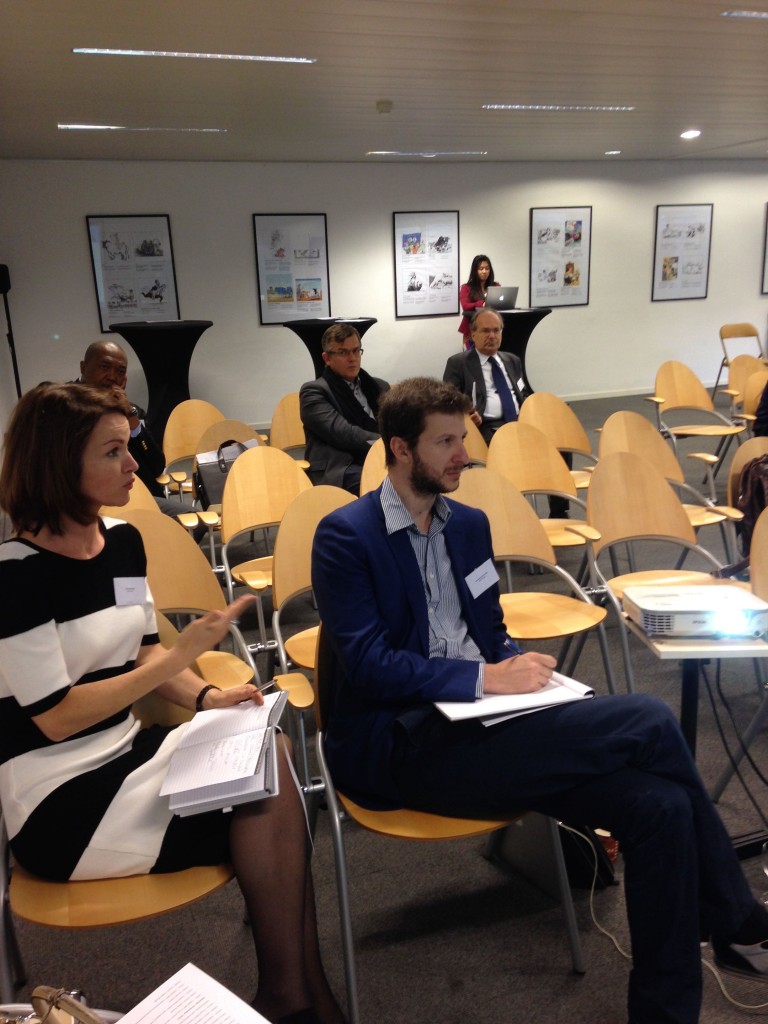 4. Stakeholder Group: NGOs
4. Stakeholder Group: NGOs
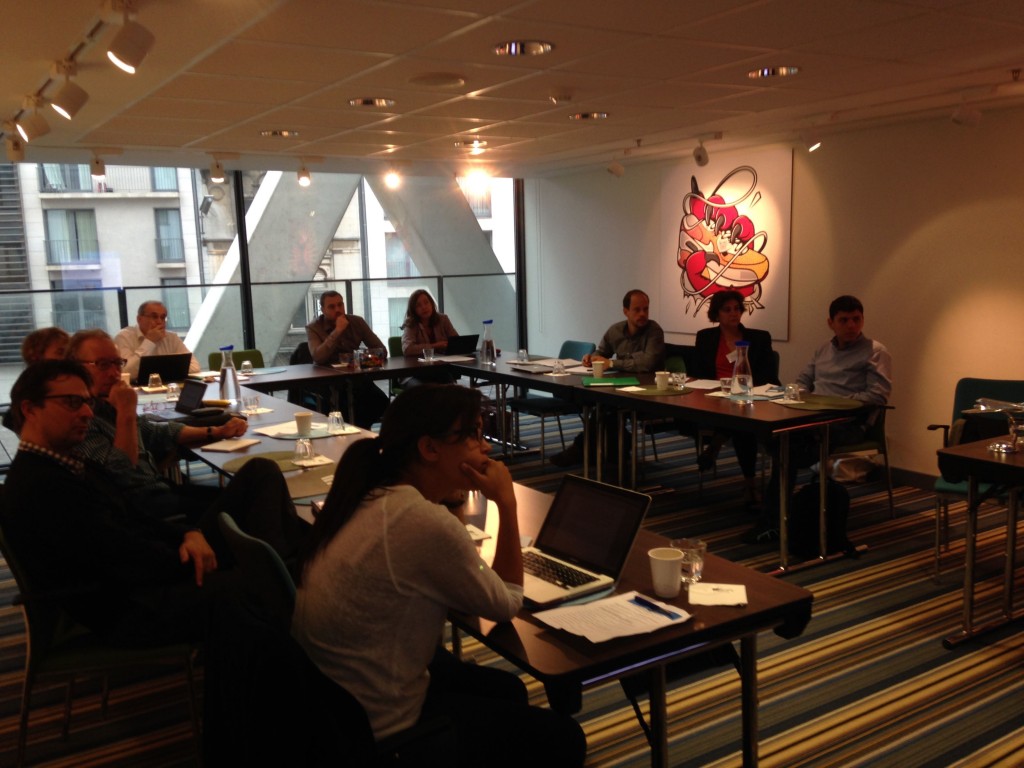 5. Stakeholder Group: Policy Makers
5. Stakeholder Group: Policy Makers
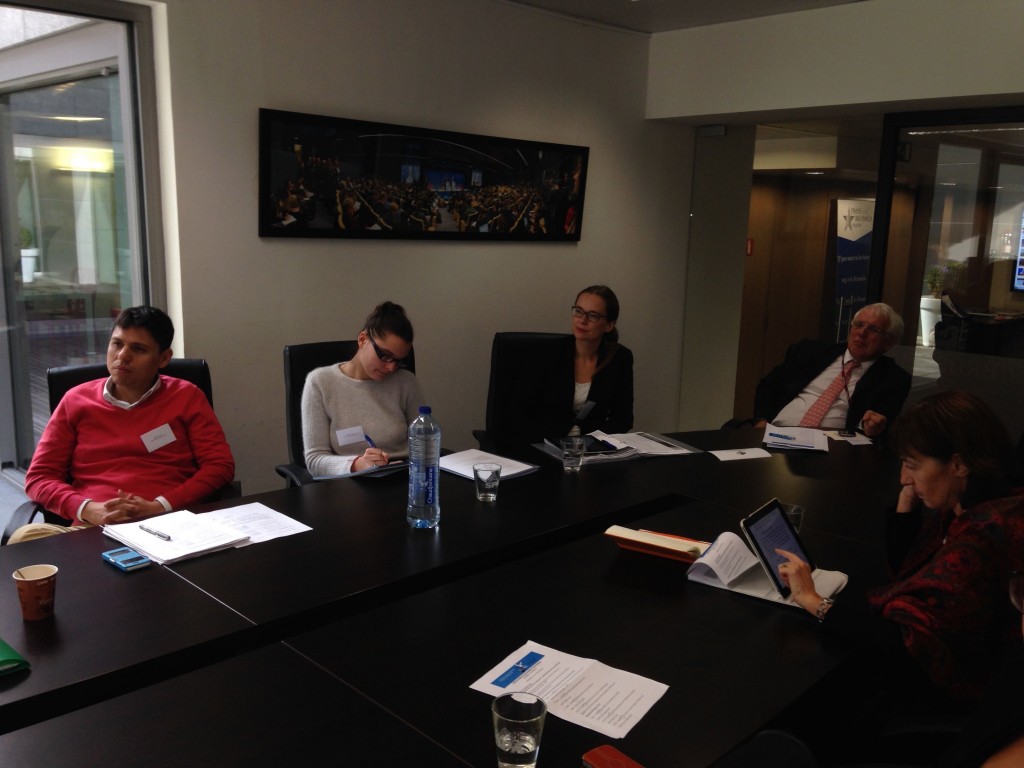 6. Stakeholder Group: All together - Conclusions (Day 2, 10 October 2015)
6. Stakeholder Group: All together - Conclusions (Day 2, 10 October 2015)
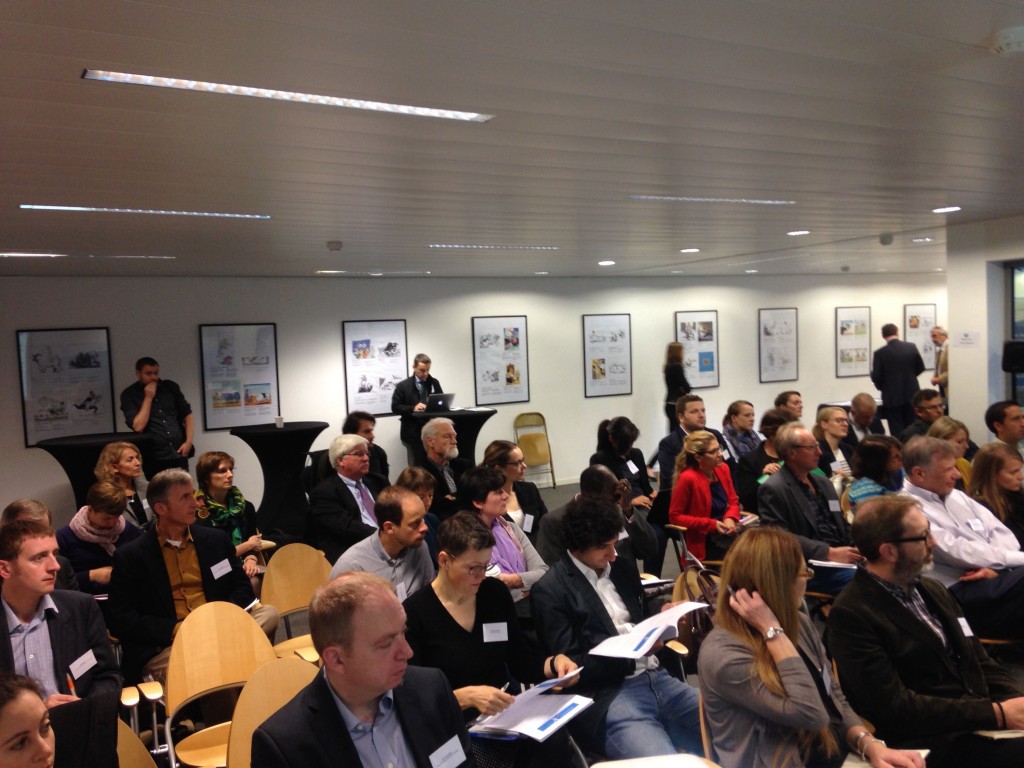
-
INFOCORE Dictionary Workshop – 20th March 2015
March 20th, 2015,
Successful INFOCORE dictionary construction workshop at the School of Journalism and PR in Skopje: Getting ready to automatically recognize important conflict-related contents in different languages.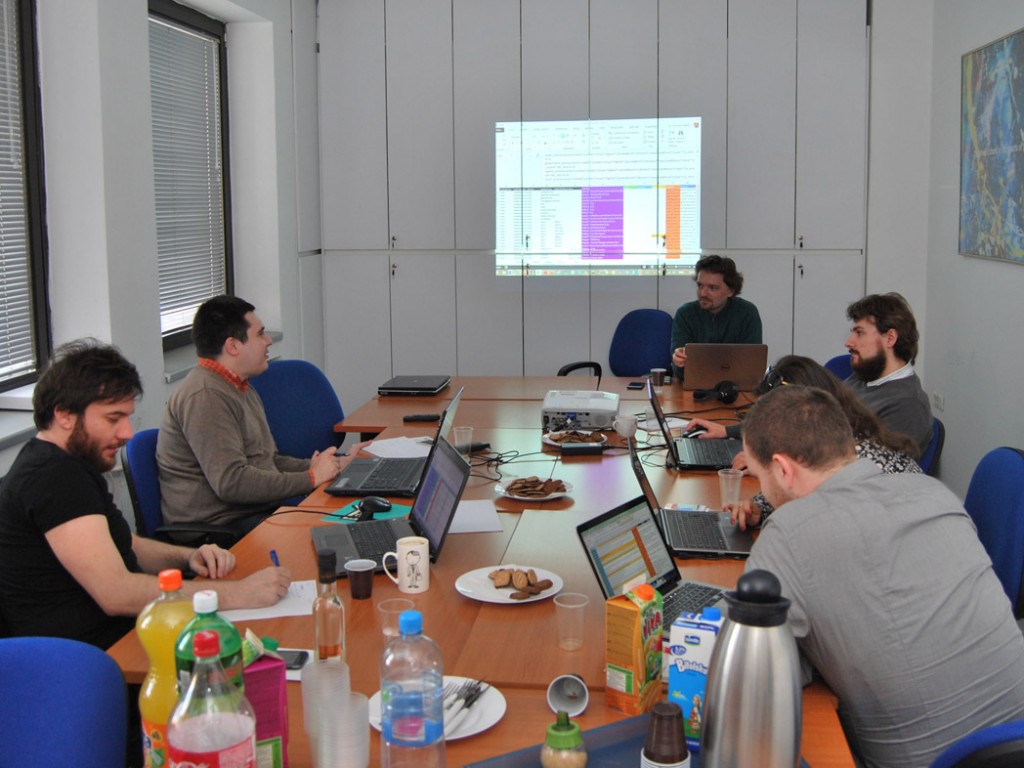
-
General Assembly II – 16th & 17th November
November 16th, 2014,
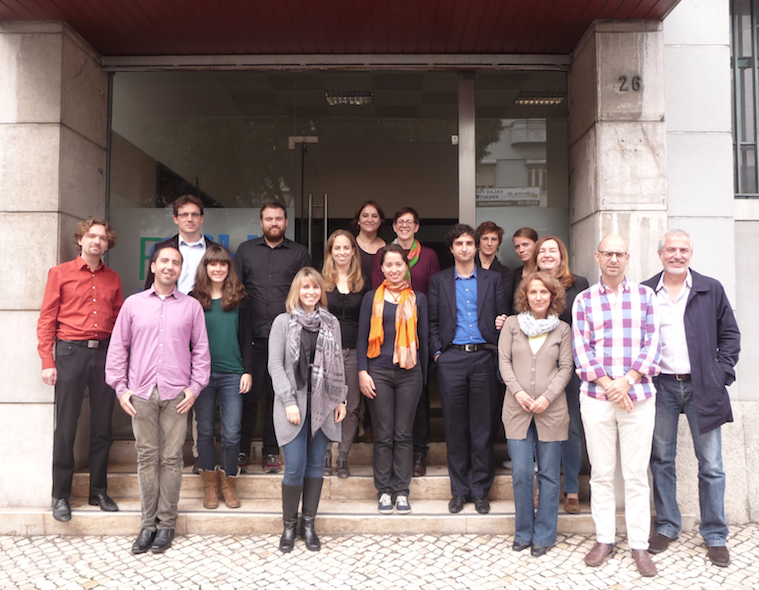 The second General Assembly of the INFOCORE Consortium took place from 16 to 17 November 2014 in Lisbon.
The second General Assembly of the INFOCORE Consortium took place from 16 to 17 November 2014 in Lisbon. -
November 15th, 2014,
November 15, 2014 - Lisbon, Portugal
INFOCORE Project Coordinator, Romy Froehlich opens meeting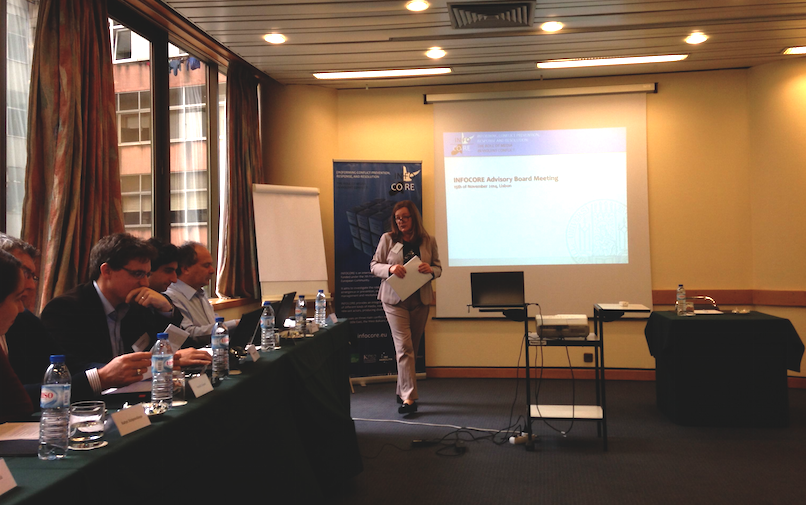
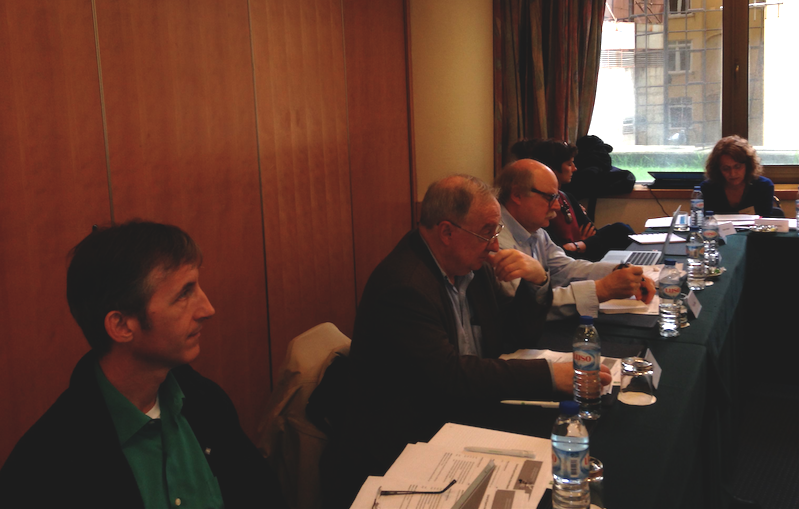 Advisory Board Members: Prof. Dr. Scott Althaus, Dr. Philip Seib, and Arne Köning
Advisory Board Members: Prof. Dr. Scott Althaus, Dr. Philip Seib, and Arne Köning
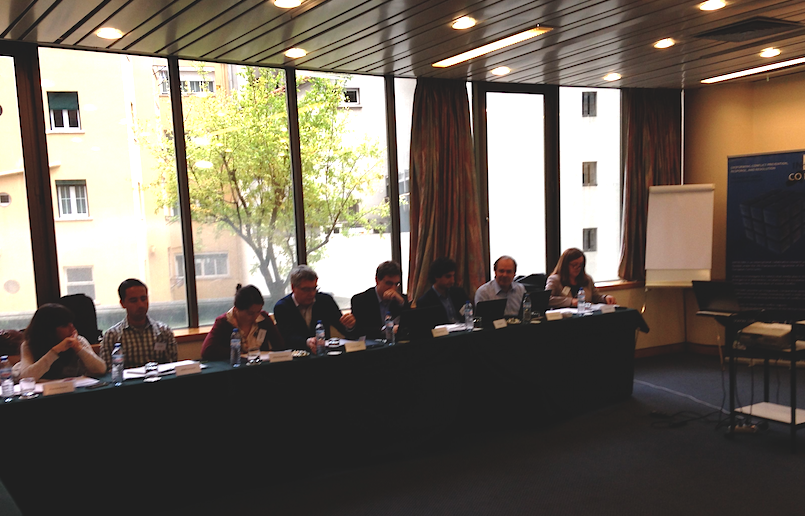 Advisory Board Members: Giacomo Mazzone and Patrick Leusch
Advisory Board Members: Giacomo Mazzone and Patrick Leusch
-
November 15th, 2014,
1. Title of Presentation: CHANGING ROLE OF JOURNALISTS IN POST-CONFLICT COUNTRIES. By: Hoxha Abit
2. Title of Presentation: (Informing conflict prevention, response & resolution: The INFOCORE consortiums approach to production and dissemination of news in violent conflict
By: Romy Fröhlich, Christian Baden, Rosa Berganza, Dimitra Dimitrakopoulou, Marie-Soleil Frère, Thomas Hanitzsch, Christoph Meyer, Keren Tenenboim-Weinblatt, Georgios Terzis, Snezana Trpevska, Gadi Wolfsfeld
Powerpoint Presentation: ECREA 2014, Lisbon, Portugal
3. Title of Presentation: Beyond peace journalism: Reclassifying conflict news narratives
By: Keren Tenenboim-Weinblatt, Thomas Hanitzsch
3. Title of presentation: Conflict coverage as guidance or resource: Interpretative autonomy and constrained diversity in news user reconstructions of the war in Libya
By: Christian Baden, Nina Springer
5. All the participants of the joint Infocore – Mecodem (www.mecodem.eu) joint ECREA panel titled: ADVANCING THEORY AND RESEARCH ON THE ROLE OF JOURNALISM IN WAR AND CONFLICT
-
Asociación de Comunicación Política (ACOP), Bilbao, Spain.
July 17th, 2014,
Berganza, R., Carratalá, A., de Miguel, R. and Herrero, B.,“La ‘agenda building’ aplicada al análisis de la comunicación política en conflictos bélicos”. Presented at the International Conference of the Political Communication Association (ACOP).
-
Working Groups Content Analysis and Working Group Interview Analysis Meeting, Munich, 7-8 July 2014
July 7th, 2014, LMU Munich, IfKW
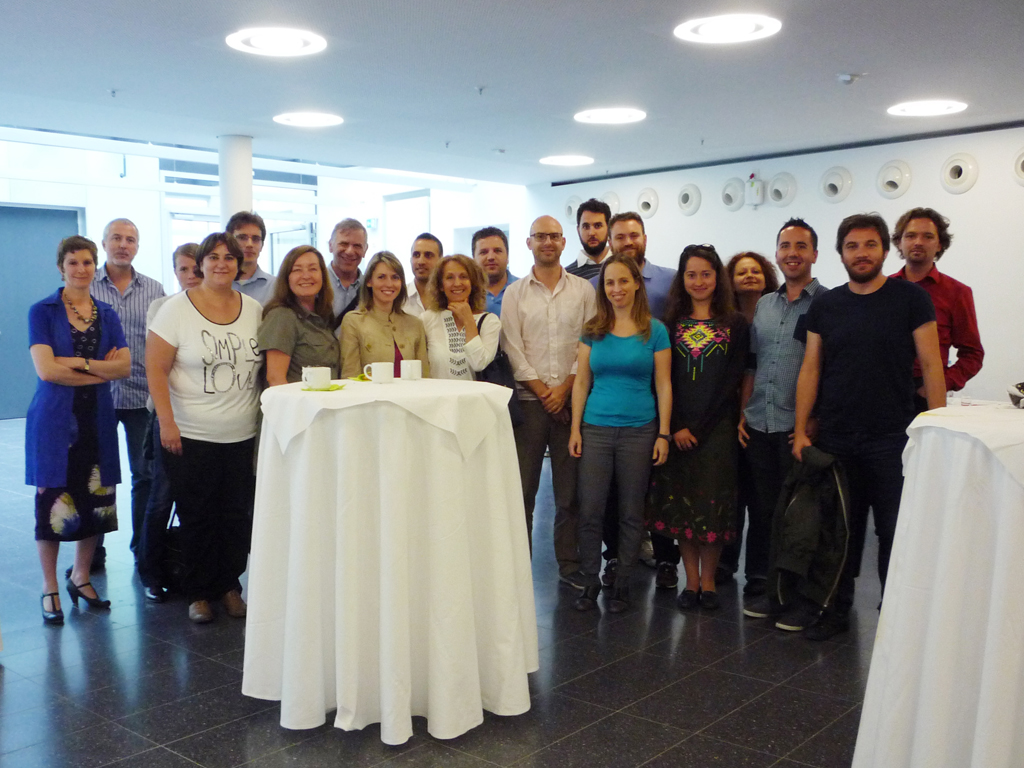 Working Groups Content Analysis and Working Group Interview Analysis Meeting, Munich, 7-8 July 2014
Working Groups Content Analysis and Working Group Interview Analysis Meeting, Munich, 7-8 July 2014The Content Analysis Methodological Group developed a practical and intense agenda in order to clarify the conceptual framework and move towards the definition of the methodological strategy. The first day, all the group members learned to use the specific software that will allow them to perform the automatic content analysis. On Tuesday, the different WPLs presented their goals and discussed on specific issues such as the periods of analysis, the collection of data, the preparation of dictionaries in different languages and the qualitative approach to the corpus.
The Interviewing Methodological Group of the INFOCORE focused on three main aspects of the research project: First, all Interviewing Working Packages (WP's) presented the respective conceptual framework papers and discussed the areas where further clarification and improvement is necessary. This is to serve as a basis for the construction of the complete methodological frameworks of the respective WP's; Second, the Interviewing WP members discussed organizational issues regarding the execution of the research - this entailed coordination issues to ensure better quality of the research results and; Finally, Interviewing WP members in a joint session with the Content Analytical Group discussed the issue of interconnectedness of the research across different areas. WP members agreed on the general conclusions of these discussions and in the following months will take action to implement them into the respective research plans.
-
ICA Awards for INFOCORE team members
May 22nd, 2014, 64th ICA Annual Conference, Seattle, WA
Two INFOCORE team members have won two of the major awards at this year's International Communication Association (ICA) Annual Conference in Seattle, WA:
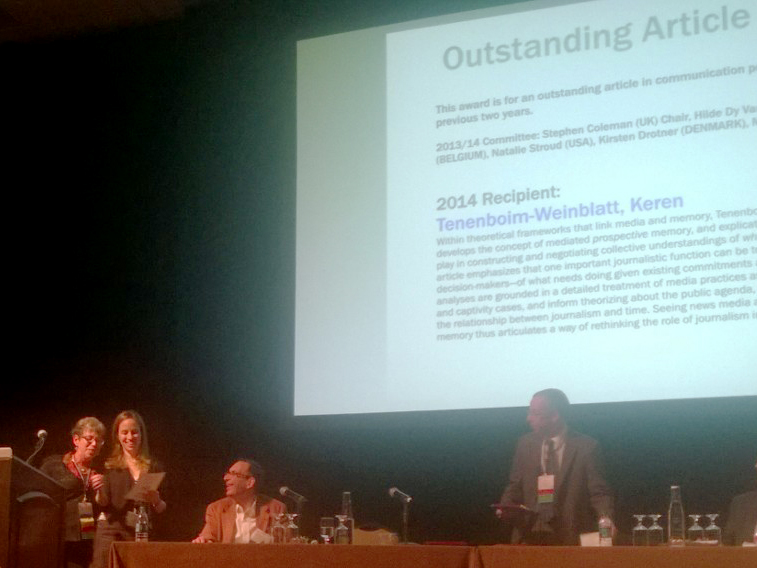 Keren Tenenboim-Weinblatt is winner of the 2014 ICA Outstanding Article Award for her article "Bridging Collective Memories and Public Agendas: Toward a Theory of Mediated Prospective Memory", published in Communication Theory 23(2), pp. 91-111.
Keren Tenenboim-Weinblatt is winner of the 2014 ICA Outstanding Article Award for her article "Bridging Collective Memories and Public Agendas: Toward a Theory of Mediated Prospective Memory", published in Communication Theory 23(2), pp. 91-111.
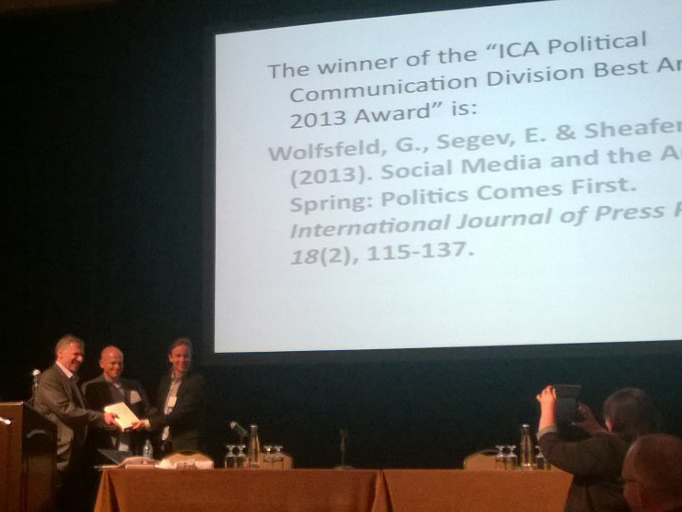 Gadi Wolfsfeld, together with his collaborators Elad Segev and Tamir Sheafer, has won the Keith R. Sanders and Lynda Lee Kaid Best Political Communication Article of the Year Award award for their article "Social Media and the Arab Spring: Politics Comes First", published in The International Journal of Press/Politics 18(2), pp. 115-137.
Congratulations, Keren and Gadi!
Gadi Wolfsfeld, together with his collaborators Elad Segev and Tamir Sheafer, has won the Keith R. Sanders and Lynda Lee Kaid Best Political Communication Article of the Year Award award for their article "Social Media and the Arab Spring: Politics Comes First", published in The International Journal of Press/Politics 18(2), pp. 115-137.
Congratulations, Keren and Gadi!
-
INFOCORE consortium members host panel at Summer School on Security Policy
May 12th, 2014,
 Photo by Skender Perteshi
Abit Hoxha, Marc Jungblut and Katsiaryna Stalpouskaya of the INFOCORE consortium were invited to host a panel at the Summer School on Security Policy held by the Kosovar Center of Security Studies (KCSS), the Belgrade Centre for Security Policy (BCSP) and the Albanian Institute for Democracy and Mediation (IDM) on May 12th in Ulcinj, Montenegro. The panel was held for the audience consisting of journalists, NGO activist and other practitioners. The three doctoral researchers of the INFOCORE from Ludwig Maximilian University of Munich presented INFOCORE’s general conceptual framework as well as their work associated with media and conflict. The panel was wrapped up by a Q&A session, at which the participants expressed their keen interest in the methodological aspect of the project as well as its future results and outcome.
Photo by Skender Perteshi
Abit Hoxha, Marc Jungblut and Katsiaryna Stalpouskaya of the INFOCORE consortium were invited to host a panel at the Summer School on Security Policy held by the Kosovar Center of Security Studies (KCSS), the Belgrade Centre for Security Policy (BCSP) and the Albanian Institute for Democracy and Mediation (IDM) on May 12th in Ulcinj, Montenegro. The panel was held for the audience consisting of journalists, NGO activist and other practitioners. The three doctoral researchers of the INFOCORE from Ludwig Maximilian University of Munich presented INFOCORE’s general conceptual framework as well as their work associated with media and conflict. The panel was wrapped up by a Q&A session, at which the participants expressed their keen interest in the methodological aspect of the project as well as its future results and outcome. -
UN Under-Secretary-General for Communications speaks on Press Work in Conflict
February 3rd, 2014 10:00:am, LMU Munich, IfKW
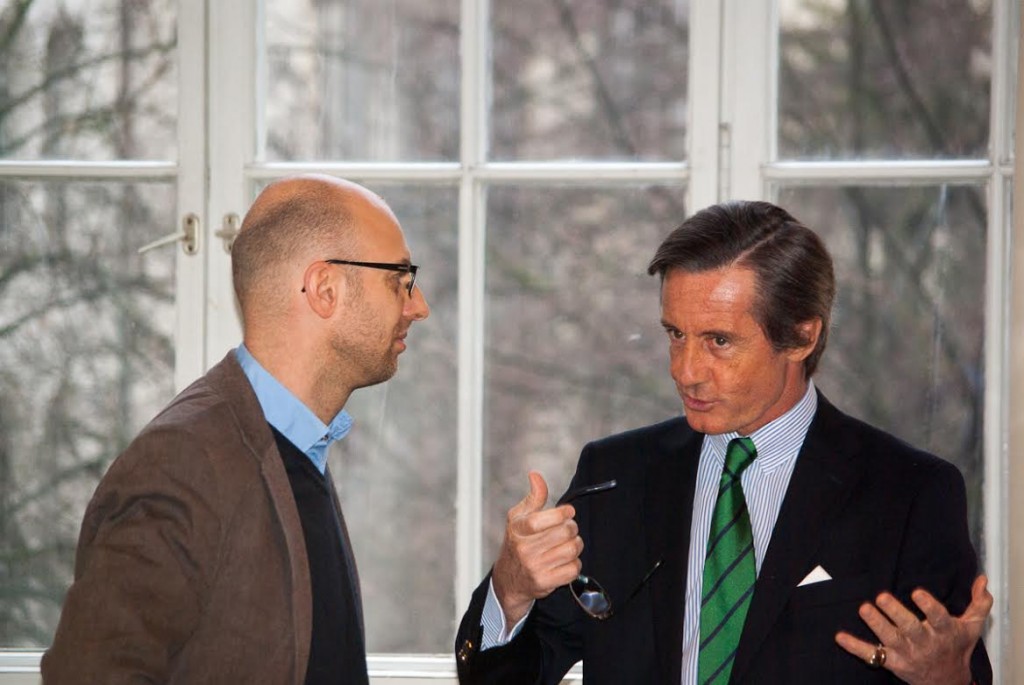 On February 3rd, UN Under-Secretary-General for Communications and Public Information, Peter Launsky-Tieffenthal, delivered a talk at the Institute of Communication Studies and Media Research in Munich. An experienced diplomat, Mr. Launsky-Tieffenthal offered an insider's view on the UN’s press department. He especially addressed the communicative challenges arising from the United Nation's cultural diversity. The Under-Secretary-General's visit to LMU took place in conjunction with the Munich Security Conference.
Mr. Launsky-Tieffenthal, who closely works with UN General-Secretary Ban-Ki-moon, spoke about the United Nation’s work in general, as well as specifically about the UN’s press work in international conflicts.
On February 3rd, UN Under-Secretary-General for Communications and Public Information, Peter Launsky-Tieffenthal, delivered a talk at the Institute of Communication Studies and Media Research in Munich. An experienced diplomat, Mr. Launsky-Tieffenthal offered an insider's view on the UN’s press department. He especially addressed the communicative challenges arising from the United Nation's cultural diversity. The Under-Secretary-General's visit to LMU took place in conjunction with the Munich Security Conference.
Mr. Launsky-Tieffenthal, who closely works with UN General-Secretary Ban-Ki-moon, spoke about the United Nation’s work in general, as well as specifically about the UN’s press work in international conflicts.
-
General Assembly & Kick-off Meeting
January 17th, 2014, GGI Brussels
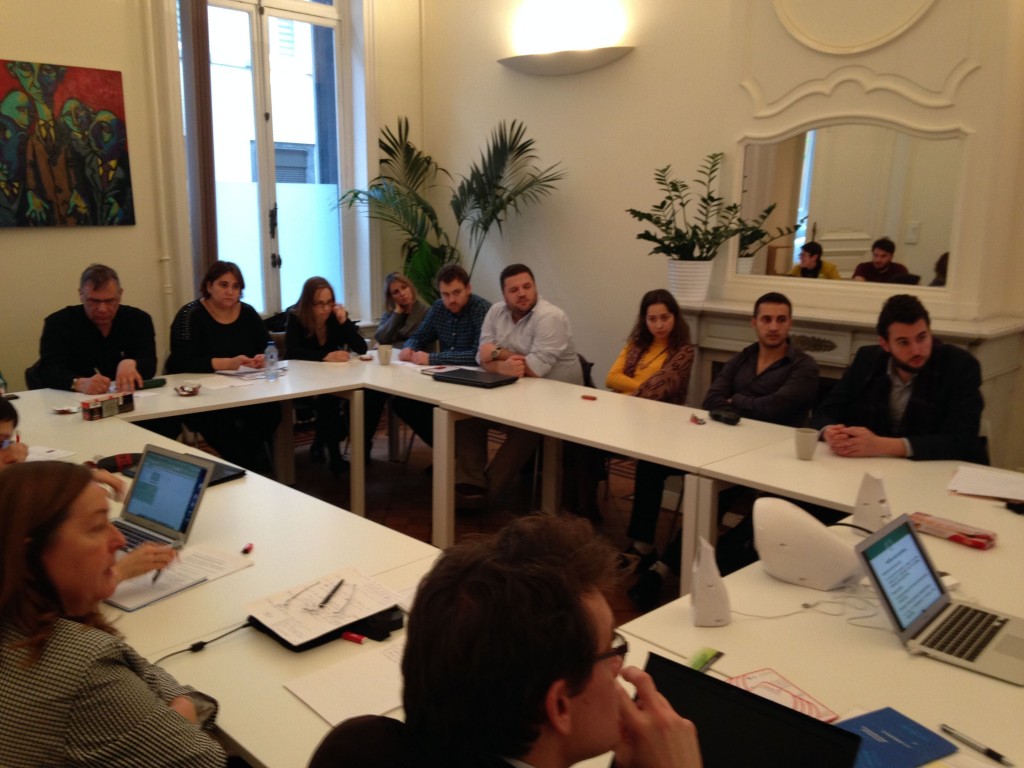 From 17.-19. January 2014 the INFOCORE’s kick-off meeting and first General Assembly took place in Brussels. The event officially launched the administrative and research activities of the three-year project (1/2014-12/2016). The kick-off meeting provided detailed information on the main activities of the project until 2016. The WP leaders decided in particular on the general ‘Roadmap’ and the strategy for year 1, agreed on the management & communication structure, tasks & schedules and the monitoring process, constituted INFOCORE’s governing bodies, discussed on a first version of the CA and on ethics issues. In the afternoon, a conference with INFOCORE project and legal officers followed. On Saturday, INFOCORES project manager provided important information on practical and administrative affairs. Two different working groups (“Interviewing Strategies” and “Content Analyses”) then developed first steps towards the specific methodological frameworks.
From 17.-19. January 2014 the INFOCORE’s kick-off meeting and first General Assembly took place in Brussels. The event officially launched the administrative and research activities of the three-year project (1/2014-12/2016). The kick-off meeting provided detailed information on the main activities of the project until 2016. The WP leaders decided in particular on the general ‘Roadmap’ and the strategy for year 1, agreed on the management & communication structure, tasks & schedules and the monitoring process, constituted INFOCORE’s governing bodies, discussed on a first version of the CA and on ethics issues. In the afternoon, a conference with INFOCORE project and legal officers followed. On Saturday, INFOCORES project manager provided important information on practical and administrative affairs. Two different working groups (“Interviewing Strategies” and “Content Analyses”) then developed first steps towards the specific methodological frameworks.
-
July 8th, 2013, IDC Herzliya
Christian Baden and Keren Tenenboim-Weinblatt presented INFOCORE’s theoretical perspective on the dynamic dissemination process of evolving conflict interpretations at the Annual Meeting of the International Society of Political Psychology (ISPP):
- Baden, C., Tenenboim-Weinblatt, K., & Fröhlich, R. (2013). Dynamics of conflict framing in media coverage: Psychological, social, and semantic processes of evolving conflict perceptions. Presented at the 2013 Annual Meeting of the ISPP, 8-11 July 2013, Herzliya, Israel.

